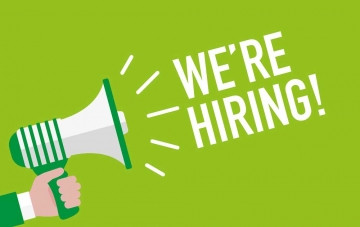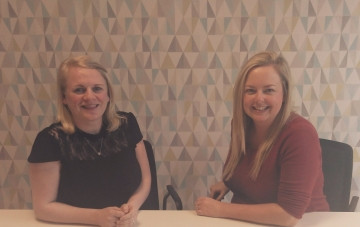
How to Avoid a Bad Hire
- February 27, 2025
In last weeks blog we outlined the dangers of hiring the wrong person, let’s now explore ways to reduce this risk and make better recruitment decisions in the future.
- Define the Role Clearly
- Ensure your job description is detailed and accurately reflects the skills and experience required.
- Clearly outline expectations, responsibilities, and company culture fit to attract the right candidates
- Improve Your Screening & Interview Process
- Go beyond the CV—use structured interviews, skills assessments, and reference checks.
- Behavioural interview techniques can help determine whether a candidate truly fits the role.
- Work with a Specialist Recruitment Agency
- A recruitment agency with expertise in your sector can help identify the right talent, saving you time and money.
- Agencies conduct in-depth candidate screening, ensuring a better match for your company’s needs.
- Look Beyond Skills – Assess Cultural Fit
- A candidate might have the perfect skills on paper, but if they don’t align with your company’s values, they won’t thrive in your workplace.
- Use personality assessments or trial periods to gauge long-term suitability.
- Invest in Onboarding & Training
- A strong onboarding process increases the chances of long-term success for new hires.
- Ongoing training and mentorship can help employees settle in and perform at their best.
Hiring mistakes happen, but understanding the hidden costs of a bad hire can help you take proactive steps to avoid them. By refining your recruitment process and working with an expert agency, you can ensure you’re bringing in the right talent from the start.

The Hidden Costs of a Bad Hire
- February 21, 2025
Hiring the right candidate is one of the most important decisions a business can make. The right hire can boost productivity, enhance team morale, and drive success. But what happens when you get it wrong? A bad hire can be more than just a frustrating mistake—it can have a significant financial and operational impact on your business.
The True Cost of a Bad Hire:
Many businesses underestimate the impact of hiring the wrong person. The costs aren’t just financial; they can ripple across an organisation in several ways:
- Financial Losses
- Studies suggest that the cost of a bad hire can be three to four times the employee’s salary when you factor in recruitment, training, and lost productivity.
- Wasted salaries, severance pay, and the cost of rehiring all add up quickly.
- Lower Productivity & Team Morale
- A poor hire often struggles to meet expectations, leading to decreased efficiency and missed deadlines.
- Other employees may have to pick up the slack, causing frustration and burnout within the team.
- Reputation Damage
- A bad hire in a customer-facing role can negatively impact client relationships.
- High turnover rates can also harm your employer brand, making it harder to attract top talent in the future.
- Increased Workload for HR & Management
- Time spent on training and performance management for the wrong hire is time taken away from core business activities.
- If an employee needs to be let go, managers must go through lengthy HR processes, further delaying progress.
Hiring mistakes happen, but understanding the hidden costs of a bad hire can help you take proactive steps to avoid them. Look out for next week’s blog on how you can avoid making the same mistake in the future.

Returning to the office? What's the impact on retention?
- October 16, 2024
We will all have no doubt heard the news that the likes of Amazon and Dell have scrapped their hybrid, flexible workplace policies for staff in favour of a return-to-office mandate.
Up to this point, the return-to-office conversation had largely fallen silent for most of this year. Hybrid work arrangements were generally being accepted as the norm for office workers, while the number of options for ‘fully remote’ work has dropped in recent times.
Where once company employees held the cards, with businesses desperate for talent as they tried to navigate the post-pandemic bounce back, the dynamic has shifted back in favour of employers.
In fact, despite multiple studies suggest that flexibility regarding where they work boosts job satisfaction, work-life balance, health, morale, productivity and ultimately, the bottom line, KPMG’s 2024 CEO Outlook report, which surveyed 1,300 CEOs around the world, indicated that 83% of UK CEOs expect to see a full return to the office within three years.
However, for those businesses hoping to make a full-time return to the office, there is plenty to consider and get right if you’re to retain your employees.
The potential impact of return-to-office on retention:
Whether it’s greater collaboration and innovation, a company culture to be proud of or a boost to your productivity, the rationales and arguments behind a decision to return to the office are understandable.
Yet, if not managed correctly, mandating a full-time return could have several ramifications for employee engagement and retention:
- Resistance and Resentment
Many have grown accustomed to the flexibility of remote work. For them, it has improved work-life balance, reduced commuting stress, and allowed for a more suitable work environment.
If staff believe their preferences and needs are being disregarded, feelings of resentment or resistance could set in.
- Talent Exodus
If workers feel that their employer is not accommodating their desires for flexibility, they may seek opportunities elsewhere.
Companies that mandate a return to the office risk losing top talent to companies that offer hybrid or fully remote work arrangements.
- Decreased Morale and Engagement
Mandatory returns can lead to decreased morale, especially if employees feel that their input on work arrangements isn’t valued.
This in turn can result in lower engagement levels, which can impact overall productivity and the quality of work.
- Diversity and Inclusion Challenges
The push for a full return to the office can disproportionately affect employees with specific needs, such as those with disabilities, or those who live far from the workplace.
This can create a sense of exclusion and inequity, further driving down morale and increasing turnover rates.
Navigating the transition to a full-time return to the office.
For employers, who feel that a return to the office will be beneficial, reluctance from employees can be tricky to navigate.
It’s vital that any strategies chosen to be adopted to mitigate the potential negative impacts and ensure a happy workforce are well thought out and created with retention front of mind.
Every company and its culture are different, but here are some key things to consider:
1. Open Communication
Effective and positive communication of your plans and why they’re beneficial is a crucial first step.
Involving your staff in the conversation about your return-to-office policies can lead to better outcomes. Conducting internal surveys, hosting focus groups, or facilitating open forums can provide valuable insights into employee preferences and concerns.
2. Allow Time for the Transition
It’s important not to rush into any changes, but instead, give your teams time to come to terms with the changes and support them with what they need to feel more comfortable.
Perceived knee-jerk changes or not allowing sufficient time to integrate new policies will not endear you to your employees.
3. Emphasising Purpose and Connection
Companies should communicate the reasons behind their decisions clearly and highlight the value of in-person interactions.
By emphasising the purpose of returning to the office – whether it’s for team building, culture, innovation or collaboration – if you can help your teams see the benefits of the changes, they are more likely to feel more positively about them.
4. Investing in the Office Experience
If you’re asking your employees to return to the office, make it a place they want to be.
Whether it’s collaborative spaces, social events, providing them with the right tools and tech, it’s important the office environment is welcoming and an atmosphere that promotes engagement and well-being.
So, it’s clear then that the decision to bring employees back to the office full-time isn’t one that should be taken lightly.
Alongside any reasons you have for this shift, your employees will have several of their own as to why they don’t see it as such a good idea.
By fostering open communication and investing in a positive office environment, it’ll be easier to navigate this transition thoughtfully and retain your people.
In the end, the key to success lies in balancing business needs with employee well-being and preferences.

7 Workplace Trends to Watch in 2024
- February 29, 2024
The way we work continues to evolve and every year, new trends emerge that force us to shift how we think about our workplace and our colleagues around us.
The past few years have seen the level of change accelerate, and there’s no signs of things slowing down in 2024.
From generative AI and belonging to more people seeking purpose-led roles and a changing of the guard, we’ve done some digging and have highlighted 7 major trends that will be key 2024 and how they will impact the workplace in the months to come.
1. Increase in AI adoption
As companies turn to AI to support them across their business and boost their productivity, this has resulted in a mixed reaction, with some excited about the opportunities it presents and some more fearful.
These fears about AI are driven not only by the threat of losing one’s job, but also the uncertainty of whether they will have the skills they need to succeed in the AI era.
Employers will need to be aware of the AI tools available and the direction the technology is going to allay these fears and ensure their teams have the necessary skills in place to be able to use them effectively in the future.
2. Employees seeking purpose-led roles
Pay is far from people’s only motivator.
Employees in 2024 are looking to gain more value from their jobs, find deeper connections with a company’s purpose and feel supported and empowered… and it’s important for employers to respond.
The more employers don’t listen to their staff and limit the things that create a sense of purpose within the workplace, the more likely their employees are to seek a move away to a business that meets their needs.
3. Skills based hiring – competence over credentials
Skills-based hiring has taken off, with many employers considering skills more effective when evaluating candidates than the credentials and experience on their CVs.
As the competition for talent hots up and pressures mount on hiring manager, businesses are starting to rethink their approach and are widening their recruitment lens to capture the diverse skills and experiences of a changing workforce.
Through changing to a skills-based approach, businesses can engage candidates from different backgrounds and experiences, which in turn leads to a more rounded and diverse workforce.
4. Plugging skills gaps with upskilling and development opportunities
With many business leaders indicating there’s a growing skills gap across their teams, it’s never been more important to double down on providing staff with upskilling and development opportunities.
It’s what employees are looking for too.
They want personalised training that’s tailored to their individual needs and that has a direct link to their future career aspirations.
Those that place learning and development at the heart of their proposition will see increased employee engagement, better retention levels, and more opportunities to hire great talent.
5. Creating belonging will be a key culture priority
Alongside diversity equity and inclusion policies, there’s a greater emphasis being placed on people’s sense of belonging.
Creating an environment that encourages people to thrive, fulfil their potential, and belong by being their true selves is essential when it comes to building a company that people want to work for.
And companies are doing this effectively by embedding their commitments into their business and highlighting them across multiple touchpoints and throughout the employee lifecycle and the recruitment process.
6. The continuing return-to-office debate
The calls for a return to the office have been getting louder in some sectors, and several big names have issued mandates putting a stop to their teams working remotely full-time.
Yet there is no one-size-fits all solution and every business is different.
With this topic high up on company’s agendas in 2024, the debate will rage on as they try to figure out the best approach in terms of productivity and employee engagement.
It’s important they take a step back, engage with staff and look at the data to determine the correct course of action to take on this hot topic.
7. More GenZers than Baby Boomers in the workplace
It’s been reported that GenZ employees are expected to overtake the number of Baby Boomers in the workplace this year.
While Boomers value things such as job security from their employer, and Gen X workers want work-life balance and career progression, for GenZ employees, company ethics, DEI and having their voices heard are among their priorities.
This represents a pivotal moment of culture change, and employers will need to seriously consider and make changes to their work environments, benefits, culture and more to attract and retain this new generation of talent.
Final thoughts
It’s true that change is the only constant, and 2024 looks set to be a year full of change for businesses and their teams.
It’s therefore important to be aware of these trends and work to understand how they relate to your own working environment so you can be better equipped to navigate any changes as they come.

How to hit the ground running in a new job
- December 15, 2022
New job? Here’s how to hit the ground running and succeed!
The application, the interviews, waiting to receive and offer… there’s a lot that goes into finding yourself a new job.
Whether you’ve just landed your first role or you’re taking the next step in your career, amongst all the excitement, there’s sure to be some nerves as you enter a new environment with new people, systems, culture and new responsibilities.
There’s a lot to consider and breaking the first few months down into a series of milestones is a great way to make the right impression and set yourself up for success. Likewise, you’ll be able to keep track of your progress and have points to refer back to as you become more embedded in your role.
So, when it comes to navigating your first week, month and 90 days, here’s our guide to how you can hit the ground running.
How to succeed in your first week:
Your first week is all about getting the balance right between making a great first impression and not putting too much pressure on yourself to get everything right immediately. Allow yourself a settling in period to learn about the business, your team and how things are done.
Make those early introductions
In your first few days, make getting know people a priority and enlist the help of others to make this happen. No doubt this will form part of your onboarding experience but commit to meeting as many people as you possibly can early on. Learning everyone’s names, roles and responsibilities is never easy so don’t be afraid to ask for a reminder or a breakdown of who’s who in each team.
Ask questions and be a sponge
Research shows the more questions new employees ask, the better they perform, so use this first week to understand how your team works best and how they communicate. Think about what’s most important to know and ask your manager and your team for it to get you up to speed as quickly as possible.
Identify where you can add value early on
While much of your first week will be focused on learning and getting to grips with how things are done, adding value to your team early goes a long way to succeeding in your new role. Offer a solution or fresh perspective to any issues the team may be having is always beneficial and a great way to add value to those around you.
How to succeed in your first month:
Now you’re getting settled in you can really start to demonstrate where your skills can be applied and what you can bring to the business.
Equally, you’ll have a better connection with people and will be more aware of the culture and dynamic that exists both within your immediate team and the wider business.
Establish and set good habits
How does your team like to work? How do they manage their team and their tasks to make sure they stay on track? A new job is a chance to unlearn habits from previous roles, develop new skills or practices and work in a way that’s more in tune with your team.
Determine what success looks like for you and your manager
The first month is the perfect time to set mutual expectations with your manager regarding what they can expect from you and what you can expect from them. Use this time to define what tools and resources you need and how your performance will be assessed.
Working with them early on to put performance metric in place, you’re set up to effectively review and measure your performance.
How to succeed in your first 90 days:
Use the first 90 days to take ownership of your role and demonstrate how you’ll add real value as an integral part of the team and the business.
Identify the challenges and set your goals
Consider the challenges you’ve already faced in your first three months and come up with a plan to overcome them alongside your manager and team. Having clarity on what you want to achieve and what goals you and your manager need to set to help you get there will make you more focused and valuable to your team. Applying yourself and being responsible for then hitting them will be significant in terms of your own professional and personal growth.
Organise a review
This may already be covered as part of your onboarding process or probation, but if not, it’s a good idea to book some time in with your manager to evaluate how things are going. Use this opportunity find out whether you’re meeting expectations and how you’re progressing. It’s also useful to set out new targets for the months ahead to keep you focused and motivated to succeed.
Final thoughts
Being proactive in your new role and taking the responsibility for your own learnings, development and milestones within the first three months of your role are an essential way to set yourself up for success.
It’s important to be measured in your approach and to get the balance right by not trying to do too much too soon.

How to create a positive interview experience for candidates
- November 16, 2022
Irrespective of company size or industry sector, attracting and recruiting the best candidates in the market has long been one of the key challenges for businesses.
In a candidate-driven market, the best talent is in such high demand that many have multiple options to choose from and the bargaining power lies in their hands.
The response from many businesses has been to increase the salaries they offer or boost their benefits packages as they endeavour to remain an attractive proposition to candidates.
Yet, with increased financial pressures caused by rising inflation rates, it’s becoming far harder for businesses to justify upping salaries in a bid to secure top talent.
While candidates will always place remuneration high up on their list of requirements, the experience they have whilst interviewing for a new role is now more of a consideration than ever before.
Why is candidate experience important?
The way candidates engage with potential employers, and what they look for from them, has changed significantly in recent times.
Feeling they’re valued, trusted and supported by employers is more important than ever before, due in part to the impact of the pandemic and resulting disruptions to many people’s careers and working practices.
Through their hiring process, businesses can demonstrate the value they place in their people and effort they’ll go to ensure they’re engaged. From the initial application right through to the job offer, every interaction can positively or negatively impact a candidate’s decision-making process.
Providing candidates with a positive experience has significant bearing on whether a candidate chooses to join or not. Therefore, to attract the best people, every stage of the recruitment process needs to be well thought out, with providing a positive candidate experience at the heart of it.
So, how can you create a positive candidate experience?
- Develop a simple, streamlined recruitment process
Have you considered whether your process is too drawn out, with too many stages? Do you require multiple team members to meet with candidates before making a decision?
It’s important to be mindful of your candidate’s time and the journey they take throughout your recruitment process. If it feels too long or a decision is hard to come by, you might find the candidates you wanted are getting snapped up by companies that move quickly.
Likewise, if your process involves unnecessary, multiple stages where candidates are asked similar questions, you run the risk of appearing disorganised and indecisive as a business.
- Review your job adverts
Today’s candidates want to see more from a job advert than simply a list of ‘must-haves’ or generic information about the business.
Ask yourself the question, “why would I want to work here?”
To engage and attract the best people and create excitement about the prospect of joining your business, use your job ads as an opportunity to showcase exactly who you are as a business, what makes you unique, your core values and what the future has in store for them.
In addition, give them clarity on what the role entails, what they can expect to achieve and what support they’ll be given in order to do so.
Having this clarity early on will mean candidates will be more bought in to the opportunity and will enter the process with a better understanding of the role they’ll play and the impact they’ll have.
- Communicate regularly
Candidates long to be kept in the loop and to know where they stand at every stage of the recruitment process.
It’s important to set expectations from the beginning on when they should expect to hear from you and even more important to deliver on these expectations. By communicating regularly and sticking to timeframes, you’ll demonstrate that you and your company are reliable.
Over-communicating will be far more appreciated than radio silence.
- Continuously review and adapt where needed
Reviewing what you’re doing and taking stock regularly is a great way to ensure you’re delivering the best experience for your candidates that you can and that it’s in line with what they want.
What’s important to candidates and the expectations they have of their employers is changing all the time, so being open to change and adaptable means your ability to recruit top talent won’t be compromised.
Listening to your candidates and acting on their feedback is important as it allows you to continuously develop your recruitment process, ensure you’re delivering a positive candidate experience and stand out from your competition.
Final thoughts
The changes you make don’t have to be too great, but at a time where the best candidates in the market have more opportunities than ever before, placing their experience at the heart of hiring strategies could help towards overcoming some of the current recruitment challenges.

Recruitment and retention trends – how law firms are winning the battle for talent.
- June 23, 2022
Across the UK talent market, there’s been no shortage of disruption when it comes to recruitment and employee retention over the past few years.
A global pandemic, changes to work environment and working patterns and ‘The Great Resignation’ have all affected the candidate market, and that’s before we understand the full impact that inflation and the rising cost of living will have.
These are issues that have affected almost all businesses, irrespective of size or sector.
Looking back over the past 6 months within the legal sector, we’ve highlighted some of the trends we’ve been seeing when it comes to recruitment and retention and what law firms are doing in response.
The majority of legal firms have come through the difficulties posed by the pandemic over the last two years, with employee growth, or at the bare minimum, employee retention, high up on their agendas.
At the start of the year, confidence was high in terms of executing growth plans, with research from MHA citing that 85% of UK law firms planned on adding to their headcount in 2022.
Further to the growth plans in terms of the number of staff, a resounding 93% of UK firms stated they had no plans to make any staff reductions at the time the research was gathered.
However, as the year’s progressed, the candidate market has become increasingly competitive and the pool of talent has begun to diminish.
Whether it’s been a result of employees turning to in-house roles for greater job security, a response to the demand for greater flexibility, or of them stepping away from the sector altogether, UK law firms have a battle on their hands to secure and attract top legal talent.
Salaries have also continued their upward trend, and with the recent rise in inflation, there’s a good chance these increases will continue throughout the second half of the year and beyond.
It’s not, however, all doom and gloom when it comes to talent attraction and many firms are working hard to overcome the current recruitment challenges.
For a number of candidates, the pandemic has altered the relationships they have with their employer, and indeed, any future employers.
No longer is one’s job all about the money. Instead, a business’s employee value proposition (EVP) has become more important to candidates who want to work for a business that stands for something worthwhile, that values its people and that focuses on their wellbeing.
It’s those firms that are focusing on their EVP and communicating it well to the candidate market that are going a long way in attracting top talent in a competitive market.
Likewise, many firms are doubling down on their efforts to create an environment and culture that’s going to appeal to both candidates and help to retain their existing staff.
Again, how they communicate this both externally and internally is hugely important if they are to cement their position as an attractive employer and many are doing it effectively.
In addition, since coming out of the pandemic, more and more candidates are looking for firms that offer flexibility in their working practices.
Naturally, hard work and dedication to the job is a given in the legal sector, however, increasingly candidates are looking for more balance between their work and home lives and are seeking out firms that offer the opportunity to strike this balance.
With this, there’s been a real push by firms to accommodate more flexibility in the hours their staff work and offer part-time contracts to employees looking for a more flexible work experience.
In essence, many of today’s legal candidates want more from their work than they did previously.
When money is no longer the biggest motivating factor, candidates are placing a company and culture that values and includes them and that offers greater flexibility higher up their list of wants and needs than ever before.
It’s essential therefore that UK law firms make serious efforts to meet these needs and to stand out in a competitive market and get ahead.
Those that do, will no doubt continue to successfully grow and reap the rewards.

How to Stand Out in a Candidate Driven Market – A Guide for Employers
- May 18, 2022
With more choice than ever before, today’s candidates are finding themselves in the driving seat when it comes to their job search.
The candidate market has changed and it’s no longer simply the salary on offer or a company’s prestige or reputation that are the most important factors to consider.
Instead, they want their job to fit around their life and they want to join an organisation that values them, offers them career progression opportunities and that can demonstrate a strong purpose.
It’s meant that many companies are struggling to adapt and find new ways to attract and hire talent. They’re needing to review the way they talk about themselves, the way they engage with candidates and the way they recruit them in order to stand out in such a competitive market.
If growth is on the agenda right now and you’re looking for ways to stand out in a candidate driven market, then read on…
Focus on the candidate experience
Everything about your hiring process needs to be designed with the candidate in mind.
Slow processes, too many stages, indecision… these can’t exist if you’re to secure the best people for your business as they simply won’t hang around.
Be proactive, agile and above all, communicative. Accommodating and reacting to their needs throughout the process is key and you can’t underestimate the power of making great candidates feel wanted and like their time is valued.
It’s important to take some time to review your current internal processes and ask yourself where you think you might be going wrong or where you could do better if you keep missing out on landing your number one target.
Write job descriptions that engage
Don’t simply write a list of day-to-day tasks and requirements.
Instead, use the job descriptions (and any adverts you put out) to really sell your business, highlight the impact this person will make and what support, growth opportunities and rewards they’ll receive along the way.
Transparency around things like salary and benefits are important here, but it’s also good to be transparent around expectations. In being open about these important factors, people’s perception of your businesses increases.
Often, job descriptions can be missed opportunities to really bring your business to life and engage with great candidates early on. It’s important to get this right as there are plenty of businesses who won’t take the time to really consider what’s going to grab people.
When creating your job descriptions, ask yourself, “what would make me apply to this opportunity and what information would I want to know beyond the everyday responsibilities?” In addition, If you’re working with a recruitment agency on a role, challenge them to deliver an advert that’s going to make an impact.
Demonstrate what makes you you
What is it about your business that makes you unique? Why should people join? And what opportunities are there to grow and progress with you?
Defining who you are as a business and how you want your candidates to see you early in the hiring process will allow you to communicate this message effectively and consistently across all touchpoints.
Look at the language and imagery you’re using to highlight your company and make sure they’re a true reflection of you as a business and the people working within it.
Likewise, by showcasing your existing teams and bringing them and their stories to life, you give potential candidates a great insight into who they might be working with in the future, which gets them more bought in to the business.
Place more attention on the people within your business
The way you speak about your teams, how you look after them, how you champion growth and career progression etc. is a great selling tool when communicating with candidates.
If your teams are involved in the hiring process, and as a business you genuinely value their growth and wellbeing, this will no doubt become obvious when talking about the business to prospective candidates or answering their questions around, “what’s it like to work here…?”
Advocate for your employees’ mental health
After all the challenges and stresses people have faced over the past few years, it’s more important than ever that your employees’ mental health is taken just as seriously as their physical health.
Again, this goes back to demonstrating how valued your employees are to your business and the importance of the need to maintain healthy wellbeing and balance.
If you can show you’ve put the necessary support structures in place for your teams and how you’ve created a safe space for them to talk openly about their mental wellbeing, you’ll be an attractive proposition to candidates.
Review, rework, repeat
It isn’t enough to make tweaks to your hiring process or the way you communicate with your candidate network if you’re not open to finding out if it’s actually working.
Taking stock of what’s going well, and where changes still need to be made (e.g., every 6 to 12 months) is a great way to ensure you’re still maintaining a competitive advantage.
What’s most important to candidates and drives their decision making will be forever changing and being open to change and adaptable won’t compromise your ability to engage and recruit top talent.
Asking for feedback from successful candidates, those that didn’t make it through the interviews and indeed, from your teams involved in the hiring phases, can also be an invaluable way to ensure you continue to stand out in a candidate driven market.

Refer A Friend
- April 28, 2022
Here at Kirkland Associates we are proud to be built on recommendations. We’re always on the lookout for great candidates so we can provide the best talent to our clients. Whether it’s a friend, family member or even a colleague, we would love for you to recommend them to us. That’s why for every candidate you refer and we subsequently place, we will give you a £50 shopping voucher.
FAQs:
What is the process for referring a friend?
Ask your friend to send their CV with the subject 'Refer a Friend” to your consultant here at Kirkland Associates. Make sure they let them know that they have been recommended by yourself.
Is there a limit to the number of referrals I can make?
No, we are happy for you to recommend as many friends as you can. We are continually looking to expand our network.
What happens if someone else refers the same friend?
If the same candidate is referred by more than one person, the first ‘referrer’ will qualify for the voucher.
When do I receive the voucher?
You will receive the voucher once your friend has completed 2 weeks of their new employment.
Any other important information?
The referral must be a new candidate to our database or have not been contacted by the team at Kirkland Associates in over 12 months.

Counter Offers - Should you stay or should you go?
- March 29, 2022
It is fair to say that over the last 12 months counter offers have become common within the recruitment process. When you consider the costs involved with recruiting and onboarding a new employee, combined with severe candidate shortages we are currently facing, it is not surprising that up to 50% of employees who hand in their notice are counter offered
As an employee, it can be flattering to receive a counter offer, and it can be very tempting to stay put rather than risk a move at the moment. But is that the right thing to do?
The statistics around counter offers are staggering with 80% of candidates who accept a counter offer leaving within 6 months and around 90% within 12 months
The key to deciding whether to accept a counter offer is to think objectively – and long term. Here are some key things we think you should seriously consider before making your decision.
Why did you want to leave in the first place? Will accepting make you happy?
Although the money might seem like a good reason to stay right now – it might not be as appealing after a few months.
Think about your reasons for leaving – have these been addressed by the counter offer? Maybe you have a nightmare commute, maybe the role doesn’t challenge you, or you have a poor relationship with your colleagues. It is rarely solely about money, therefore consider whether your concerns are going to be met.
So accepting a counter offer purely for the financial benefits doesn’t mean that you won’t still feel dissatisfied in your role in a few months’ time. Keep in mind the reasons why you decided to resign in the first place and only accept a counteroffer if it resolves these issues.
What will your employer think?
Your resignation tells your employer that you’re unhappy, and once you make that known, there will always be a question mark hanging over you. Be mindful that loyalty and trust has been broken and will take time to rebuild.
Aside from putting a potential strain on your working relationship, they may also avoid favouring you above other, seemingly more committed, colleagues. For example, promotion opportunities or big projects may be entrusted with someone else instead of you, and your job might be a little less secure. Your employer may also be reluctant to invest in training opportunities which may affect your long-term career.
Are the reasons behind the counter offer in your best interest?
It may feel flattering, but consider the real motives behind the counter offer. Do your employers value you as an individual or is it easier and cheaper to retain you than to recruit and train a new member of staff?
It is worth considering whether you would have received this recognition of your hard work if you hadn’t handed in your notice, and if not – do you want to stay at a company that doesn’t reward its employees until they hand in their resignation.
Think about how you would react to a counter offer in advance.
It is a good idea to consider what you would do in the event of a counter offer. At Kirkland Associates when we are working with candidates we always ask candidates to think how they would feel if they were counter offered and how they would deal with.
Most people think long and hard about leaving their current firm and it is unlikely to be a decision that would have happened overnight. If you are faced with a counter offer and weren’t prepared for this, you find yourself faced with two career opportunities (the new firm and your current firm) with very little time to decide…. this is when wrong decisions can be made that can prove costly for your career. By being prepared and thinking this through carefully, you'll be better placed to make the right decision for your career.
For all these reasons and more, if you receive a counter offer when you hand in your notice make sure you’ve weighed up all the options first – and thought about your main motivations – before making any formal decisions.

Perks of the Job: Why basing your job search on salary alone could be losing you money.
- October 26, 2021
When you're searching for a job, how flexible are you with the salary offered? When judging the potential earnings of a prospective new role, very few of us will look past the salary being offered. However, if you are choosing to apply (or not apply) for jobs based on salary alone, you may be missing out.
Many employers will now offer some sort of benefits package. The scope of this can vary greatly from company to company, and so it makes sense when checking job ads to look at this alongside the salary and to factor this in as a whole. Company benefits can often be worth far more than a higher salary.
Core Benefits Vs Additional Benefits
When weighing up the worth of any individual company's benefits, it's important to recognise the differences in benefit type. Typically, a company's benefits will fall in to one of two categories - either core benefits or additional benefits. Core benefits are available with all employers and are a legal requirement in the UK. So, if a company is advertising them as an additional perk, you should be aware that they are legally obliged to offer them anyway. In the UK, core benefits are:
A workplace pension
This is a scheme in which an employer sets up and contributes to an employee's retirement fund. Since 2012, all employees are auto-enrolled on to a company pension scheme, though you can opt out if you wish. If enrolled, contributions to a workplace pension must be a minimum of 8% of qualifying earnings, and at least 3% must be paid by the employer. You may find that some employers offer an enhanced scheme where they will contribute more than this.
Holiday pay
The majority of UK employees are entitled to a minimum of 5.6 weeks holiday per year. This usually works out as 28 days, but for part time employees this would be pro-rated. Anything offered above this amount could be seen as additional income, so this is an important thing to take note of when judging the worth of a role.
Additional benefits or perk's are schemes offered by companies to make workplaces more appealing, and can greatly improve employee wellbeing and satisfaction. When it comes to additional benefits offered by any one company, there is a vast range on offer and no two companies will have the exact same perks. Let's look at some of the most popular optional benefits offered by UK employers.
Employee Discount Schemes
These come in many forms. This could be a generous discount on the products sold by the company you work for, or even the occasional freebie. Wider discount schemes such as Perkbox are also becoming more popular, which are discount schemes that offer employees generous savings not only on the products of their own company, but also on things like cinema tickets, holidays, days out, high street stores and eating out. If these are things you plan to do anyway, you could find that the savings offered by these schemes amount to a considerable financial benefit.
Medical/Dental Plans
Many companies now offer private healthcare and dental plans which, depending on how much you use them, could be worth thousands of pounds, and give you access to high quality treatment that you may not otherwise have had the budget to access. Many of these plans allow you to include spouses and children too, meaning the whole family can access fast, streamlined, quality care.
Free food/drinks
Anyone who uses their lunchbreak to grab a meal deal or a coffee from a local seller will know how quickly work food and drink costs can mount up! The average UK employee spends around £10-£15 on food and drink at work per week - over the year that could be more than £500! So when employers provide free food or drink on site, this can amount to a huge saving.
Free or subsidised travel
Unless you work from home, or within walking distance of your place of work, commuting costs are likely one of the biggest - if not the biggest - expense associated with your working day. So when companies offer to offset this cost, it can be a big help. Companies may also offer loans for annual travel tickets, which you then pay back as a salary sacrifice. This can amount to a huge saving. In Nottingham, for example, paying for 5 day passes per week to use the tram could cost you in excess of £1000 per year, whereas an annual tram pass costs just £525.00 per year*. So you can see how much value there is in companies offering this perk.
Learning and Development allowances
Many companies now offer an annual learning budget to their employees, so that they can gain a qualification of their choosing. Most of the time this will need to be a qualification related to your role, but some may be flexible on this. This can be great if you've been thinking of gaining a specific qualification but are lacking the funds to do so. As well as improving the skills you use in your role, becoming better qualified can also open up your earnings and promotion potential. So if a company offers this fund as a perk, it's worth looking at!
So, how do you find a balance between salary offered and perks of the job? Well the reality is that different things will suit different people's lifestyles so it's important to weigh up how the benefits will help you personally. If some of your personal or household needs can be catered for by a company benefit you may find that this is of more value to you than a simple wage increase. On the other hand, a higher wage may be better for your circumstances, and bring you greater job satisfaction. What's important is that you do what's right for you - remember that it's just as important for a potential role or company to be a good fit to your lifestyle as it is for you to be a good fit for their team.
If you're looking for the perfect role to suit you, why not give us a call today on 01332 638035
.jpg)
How to Make Your Career Change Daydreams a Reality
- September 24, 2021
What did you want to be when you grew up? Maybe it’s exactly what you’re doing now. But for many, the question of what might have been, had they chosen a different path, springs to mind from time to time, and we daydream about changing careers. But there are often factors in play that stop us making those dreams a reality. Financial and family responsibility, security in our current job - these are all things that can keep us where we are. This isn’t a problem if we’re happy in our current role, but what if we’re not? Well, if this is the situation you’re in, you may just be in luck. Because, as it turns out, there may never have been a better time for a career change. Read on to find out more.
What’s changed?
In our August blog, we talked about the current candidate shortage in the UK, and the way that this has led a lot of companies to reevaluate their requirements for potential candidates. Peruse a few job ads today, and you may notice that some of the focus has shifted from previous experience, instead focusing on transferable soft skills and the right attitude.
The fact that many people have had time over the past 18 months to reflect on the things they really want from their work lives has also led to a surge of people changing industries and roles. These two elements combined have created a perfect storm of conditions for a climate of career change.
Why should I change career?
There are a number of reasons people might change career, and the fact that it might be your dream role is just one of them. Often the desire to move role and/or industry might come from a need for better career progression and earning potential, because of personal values, or for a better work/life balance.
But it’s important to note that there can be downsides to changing careers. If you have been in the same career for a while, you may have worked up to a senior position, higher salary and notable reputation. Starting from the beginning in another industry can be tough, so it’s essential to have enough passion for the change to see you through this. It may also mean a huge learning curve and a cut in salary, so you may also need to factor in whether the change is compatible with your financial situation.
Know your values
So, how can we tell if a career change is going to be worth it in the long run? The best thing to do is to start by thinking about your values, and what makes you happiest in your current role and your personal life. Be realistic about this too. For example, if you’re attracted to the potential acclaim that would come from running a successful restaurant, but in reality you would hate the day to day hard work that came with it - then chances are this should probably stay as a daydream. Once you’re looked at this objectively and worked out what your values are, you can start to understand what you would really want to gain from a career change.
Do your research
The next step is to do your research on the industry and the sort of role you would like. Follow dream companies on social media. If you can, speak to people who already work in that industry or in roles similar to the one you want.
Dust off your skills
If you need to brush up on any existing knowledge or learn something new, there are some great online resources to use. The National Careers service lists a number of online courses, most of them free, that you can use to strengthen your skill set. Places like LinkedIn Learning and Udemy are also great for picking up the basics needed for an entry level role.
Search for the right role
When you’re searching for a job, don’t be put off if you come across several adverts where previous experience is required. Entry level jobs can be a bit rarer, but they do show up. And they’re increasingly common in the current climate. When reading the candidate specification, think about your own transferrable skills and how you can use these to meet the requirements in areas where you may not necessarily have any direct experience.
At interview, again, focus on your transferrable skills and your attitude and enthusiasm for the role. If you feel it’s appropriate, you can even address your lack of experience, by saying something like “I know that there may be some concerns around my experience levels, but I believe that my natural drive and determination to succeed in this role will ensure I learn quickly and contribute positively to the team from the start”.
It’s a well known fact that the average person spends a third of their life at work. So it’s important to do something you find fulfilling. If changing careers will have a positive impact on your wellbeing, motivation and job satisfaction, then go for it - it’s a great time to do so.
For help finding your dream role, give us a call today on 01332 638035.

The UK’s Skills and Labour Shortage: Why it’s happening, and what you can do.
- August 20, 2021
The UK’s Skills and Labour Shortage: Why it’s happening, and what you can do.
The number of staff available to fill vacant positions in the UK is at the lowest since 2017. The candidate shortage is widespread, and affecting all sectors. There are not enough qualified candidates to fill all the jobs available in the UK, and this is having a huge impact on both jobseekers and companies looking for new staff. How did we get here? And what can we do about it? In this post, we'll explore what this means for both candidates and businesses, and we'll discuss some strategies that both sides can use to make the most of the situation.
So, how did this happen exactly? Well, there was already a skills and labour shortage prior to the pandemic, which has been greatly exacerbated. The pandemic has reduced jobseeking activity, with people much less likely to want to leave an existing role with so much uncertainty still in the air. At the same time, in a rush to reopen and return to 'business as usual', there has been a hiring rush amongst many sectors. Without the demand to meet the rush, this has led to the biggest candidate-to-job discrepancy in years.
A big reason things are quite so bad is due to the combined effect of Brexit and Covid-19. Both events led to a number of skilled migrant workers returning to their home countries, and restrictions on travel have meant there's nobody travelling inwards to balance the deficit.
In this blog, we want to talk about what this means for both our candidates and our clients. We'll talk about the obstacles that you may face, and how you can make the most of the situation - whether you're hiring, or trying to get hired.
So firstly, candidates may be wondering how the shortage affects them, and if this should change the way they apply for roles. One of the big positives for candidates is that this shortage effectively makes it a great time to be searching for a new job. Competition for roles is down, and starting salaries are up. With less competition, this could also mean more opportunity to move between sectors, if you were looking for a complete change in career.
The situation is definitely one that can be used to a candidate's advantage. Take the time to search for a position and industry that you're truly interested in. Many companies at the moment are willing to invest in more training to fill the skills gap - so if you've been putting off applying for your dream role due to a lack of experience or skill, now might be the best time to strike. Of course, there is no harm in doing some independent learning beforehand, and in a market with a skills shortage, knowing the basics or being able to demonstrate your willingness and ability to learn something new may give you a competitive edge.
So, on the other side of this coin, what does this mean for businesses with recruitment needs? Though it may seem as though the situation places you at a disadvantage, there are actually many aspects to the shortage that may bring positive outcomes.
Candidates having the freedom to be more selective means that you're likely to see candidates with a quality attitude - with a genuine interest in being at your company. In addition to this, candidates are more likely to apply outside of their previous sector, so you may gain access to a pool of candidates you otherwise wouldn't have seen.
Of course, there's no denying the negatives of this situation for businesses. Costs are likely to increase as average starting salaries rise. Plus - you may find it difficult to recruit someone with pre-existing skills, meaning your training costs could be higher too.
Look at schemes which offer funding that could help you to recruit the right people. Lottery funding is available for businesses in certain areas looking to expand. And the government's Kickstart scheme provides funding to employers to create jobs for 16-24 year olds on Universal Credit. You could also look at investing in your in-house training, or offering apprenticeships. If you're struggling to find candidates with existing transferrable skills, work with an experienced recruiter who knows your industry and can introduce you to potentially suitable candidates.
It's unclear how long the shortage is going to last. Most experts agree that a review of the current immigration rules is also needed to allow skilled workers to come back to the UK and fill roles in those industries most affected by the crisis. However, as recovery from the pandemic continues and people become more comfortable, more may begin to consider job hunting again in a more stable market. The increase in average starting salaries will also help to entice people in to new roles.
However the ongoing situation affects you as a business or as a jobseeker, you can work with a recruiter that cares about your needs. Get in touch with Kirkland Associates today to find out how we can help by calling 01332 638035.

The Changing World of Hiring: Applying and Interviewing in a Post-Pandemic World
- July 30, 2021
The recruitment process is changing more and more as remote working becomes increasingly popular. And now, with the explosion of video calling, it is possible - and certainly commonplace - to interview for a job without ever leaving your home. This blog post will explore how this has changed the recruitment process and what you can do to make sure that you are prepared for this new way of applying!
A necessary change
During lockdown, companies had to quickly rethink their recruiting strategy. You may remember that telephone interviews were a popular first step in recruitment before the pandemic, but they have certainly become even more prevalent in the last 18 months. And, of course, the majority of people will now be no stranger to video calling, which, as well as being used as a means for keeping in touch with family and friends, has also been used in abundance to conduct remote job interviews. Add to this the increasing use of online assessments, so that companies can get a real feel for a candidate's skill before they've even made contact, and you can see how the hiring process has been changed drastically.
With most remaining restrictions lifted earlier this week, employers are now left to decide whether they will continue with these methods, or return to more traditional face-to-face interviews. There are benefits to both - read on to find out what these are.
The positives of remote interviewing
Though remote interviewing was introduced as a response to an emergency, there's no denying that it has clear benefits as a standalone practice.
- Companies can find talent they might not have had access to otherwise.
- A more diverse pool of applicants will be attracted, bringing fresh perspectives into the company.
- Both the hiring company and the candidate potentially save time and money by eliminating travel time and cost, and the need for a suitable interview space.
- A remote interview can reduce a candidate's nerves, meaning hiring companies get to see how they answer questions and respond to situations in a relaxed, real-world way, rather than under the pressure of anxiety.
The positives of traditional interviews
Of course, as mentioned, the ‘old’ methods do have their plus points too:
- Being able to see the candidate's facial expressions and body language in person helps you to understand them more.
- More opportunity for both interviewee and interviewer to build rapport.
- Being able to see the workplace in person helps a candidate to decide if the company is a good fit for them and their values.
- Less chance of interviews being hindered by technical difficulties.
What next?
We're now at a crossroads, and companies across the UK (and beyond) will be deciding for themselves how they want to continue with their recruitment processes. We may see a rise in hybrid recruitment processes, allowing hiring companies and candidates to get the benefit of both types of interview. This could involve companies conducting initial interviews over phone or video call, moving on to an in-person interview following a candidate shortlisting. A similar model was used pre-pandemic with phone interviews commonplace for first contact - but we expect this may shift to video interviews as the norm.
“It is clear that Covid has had a massive impact on the way we recruit, at the beginning of the pandemic recruiters were forced to shift to virtual recruitment activity. As we come out of restrictions it looks like video interviewing is not going anywhere soon with both clients and candidates seeing the benefits to the recruitment process.” - Sarah Bailie, Senior Associate, Kirkland Associates.
How to survive a video interview
Whatever happens, it would be prudent to stay knowledgeable and prepared for any kind of interview if you expect to be job hunting at any point in the future. The good news is, some of your preparation for a remote interview will be the same as for a face-to-face interview.
Dress Smartly
Don't cut corners on your appearance just because you're at home. It might feel less formal, but it's so important to dress and groom exactly as you would for an in-person interview. A first impression is a first impression, whether it's face-to-face or on camera. Resist the temptation to only dress smartly from the waist up too! One candidate recently attended an interview in a shirt and tie, only to stand up mid-way through the interview and reveal a fetching pair of jogging bottoms! (Astonishingly, he still got the job!)
Prepare, prepare, prepare!
Though the temptation might be there to have off-camera notes to allow you to spend less time practising your answers, don't do it. It will be blatantly obvious if you are reading something off-camera. Prepare and rehearse in the same way you would for a face-to-face interview. Of course, just as with a face-to-face interview, there's nothing to stop you from asking if you can refer to notes from time to time, but use them as sparingly as you would in person.
Choose your space wisely
Make sure you plan ahead when choosing an appropriate location to conduct the video interview, such as your bedroom or office. You will want to avoid disruptions from other members of your household and make sure there's nothing that could be distracting for the interviewer in the background on screen!
There is no denying that the interview process has changed during the pandemic. Whether this is short term or long term change, we will see with time. We've given you some tips on how to navigate these changes and hopefully land your next job! If you're looking for your next role, give us a call on 01332 638035. Our team of recruiters is waiting to help you achieve job searching success!
Work with a recruiter that cares.

The Remote Working Revolution: What's next for #WFH in the UK?
- June 22, 2021
The Remote Working Revolution: What's next for #WFH in the UK?
For most people, the past 18 months has irrevocably changed our working environments. We can see infection control policies and social distancing rules enforced in any communal workplace now. Still, the most significant shift in work-life globally is the shift to homeworking.
Working from home has several benefits, including more flexibility to work around home life, fewer interruptions from office chat, and no commute. On the other hand, homeworkers also report more difficulty separating work and home life, and a lack of in-person contact. Nonetheless, homeworking was often a coveted perk for many.
Pre-Covid-19, regular homeworking was the norm for only a few. The Office of National Statistics (ONS) reported that between January-December 2019, just 5.1% of the UK workforce said they worked mainly from home. 1% said they worked on the same premises as their home, such as farmers or people with a shop attached to their home. Just over 8% worked with their home as a base, travelling to multiple locations. Historically, occupations requiring higher qualifications and experience were more likely to offer homeworking options.
In 2019, the law stated that any employee with a minimum of 26 weeks of service could make a flexible working request. This right is available to all workers, not just those with parent/carer responsibilities. Employers could reject these requests provided there was a good business reason for doing so. The above is still the law at the time of writing this blog, but recent developments suggest there could be changes in the future. More on that later.
In March 2020, the UK was plunged suddenly in to a national lockdown to slow the spread of Covid-19. The Government told the public that they must work from home where they could. All non-essential retail outlets and other public premises were closed. Millions of workers were either furloughed or thrust into homeworking. For some, this was the first time they had worked from their home environment. Problems arose from the lack of proper facilities, not to mention that schools were also closed, meaning a considerable proportion of the UK's workforce was also home-schooling. 47% of homeschooling parents said their job was negatively affected by this.
After the initial panicked rush for business continuity subsided, homeworking began to feel somewhat comfortable. It quickly became apparent to many businesses that not only were their employees adapting, but they were also more productive and focused when working from home. Once a perk bestowed sparingly for fear of work-rate issues, it was now proving to be a more efficient workplace structure than had been realised previously. Quite simply, remote working, worked.
Millions of us have now been homeworking for over a year. In 2020, 35.9% of the employed population worked from home at some point, a massive increase on the previous year. And yet, for the most part, businesses with homeworkers were still able to operate normally. This, coupled with the increase in productivity, suggests that homeworking – rather than being a temporary fix - is a viable working arrangement that may be here to stay.
We have seen a steady increase in the number of home-based and hybrid roles advertised. More and more companies are beginning to recognise the benefits of recruiting for flexible positions, enjoying the productivity benefits already mentioned, and the advantage of being able to recruit from a much larger talent pool with location removed as an obstacle. Not all businesses are enthusiastic about the continuation of remote working though; Goldman Sachs boss David Solomon described it as "an aberration that we're going to correct as soon as possible."
Last week saw a news report that the Government was putting together a task force to decide how best to proceed with Flexible Working legislation in the future. There is also talk on the future of the remaining Covid-19 restrictions in the workplace. Ministers have been advised that a sudden removal of all restrictions is risky, and so it's thought that the Government is considering a hybrid approach in the immediate future.
Public opinion is somewhat divided on what the long term future of remote working will be. One think tank told the BBC they expected the 5-day working week to become the norm again as soon as within the next two years. Others - to the contrary - believe there is no turning back from their new way of working. Though an increase of people returning to the office is undoubtedly on the cards, the last 18 months will surely continue to have a lasting impact on flexibility expectations and requests in the workplace.
Whatever sort of role you're looking for, Kirkland Associates can help. Give the office a call today on 01332 638035 for a chat about your next career move.

3 Reasons Why Interview Feedback Matters
- May 11, 2021
One of the biggest bugbears we hear from candidates about the recruitment process is not receiving feedback when they have been unsuccessful. Job seeking can be stressful and an emotional time, we all know how much effort goes into preparing and researching for an interview. Not only can it be disappointing when you find out that you did not get the job you had set your heart on, there is nothing more frustrating for candidates than walking away with no feedback on why they have been unsuccessful.
Interview feedback is not only extremely useful to candidates. It can also benefit your organisation long-term.
Here are three reasons why interview feedback is important:
1. Feedback can help candidates get another job
Providing candidates with constructive feedback following an interview may help the candidate improve their interviewing technique. They may not be the right fit for your role however your feedback can help improve their chances of securing the next vacancy they apply for.
2. It is great PR for your business
We all know how long it takes to prepare for an interview, not to mention any additional tests or presentations required as part of the recruitment process. It is important that this is recognised, and the candidate is thanked for their time and interest in your organisation.
Word of mouth is a powerful thing, and if a company fails to provide interview feedback, candidates are sure to let people know. It is not uncommon for individuals to air their grievances on a public platform such as LinkedIn or Glass door. Whereas detailed and useful interview feedback can be an extremely effective marketing tool for your company.
Treating job applicants with respect increases the possibility of them leaving your business a positive review.
3. Potential Future Candidate
It is always worth bearing in mind that although a candidate may not be right for your business now that does not mean to say that after a few years more experience they may be perfect for another vacancy. Do not risk losing them to another organisation because they have remembered a bad experience with yours in the past.

Five top tips on handling interview rejection
- February 26, 2021
Everyone has been there, the dreaded rejection email, letter or phone call. It is never a nice experience. Whether you have had your heart set on the job, or weren’t even sure if you wanted it, it still hurts to know you have been rejected.
The way you handle rejection is so important. If you allow it to knock your confidence and make you doubt your abilities, it could affect your performance in future interviews. It can be especially hard to cope with it when it happens over and over again, but that’s not an uncommon experience for job seekers.
So whilst interview rejection is a fact of life, letting it affect you negatively doesn’t have to happen. If a rejection email does ping into you inbox, here are our five top tips on how to handle it and come back even stronger.
- Don’t take it personally!
It is easy to take rejection to heart and blame your abilities or interview technique. But try not to read too much into it. There can be many reasons behind hiring decisions that won’t be made apparent to you. For example, you may have performed excellently but there may have been a strong internal candidate who is already familiar with the business, or alternatively someone who has come through a recommendation in the company. These are things that you cannot change; they are beyond your control. You may never know the real reason why you weren’t selected, so don’t let it keep you down. If you were fully prepared and tried your best, there is little else you could have done.
- Accept it with grace and tact.
If you do get turned down for a job, show what a courteous and professional candidate you are by sending a polite thank you email the day you receive the rejection. This is especially important if you would like to be considered for their jobs in the future. You should thank the interviewer for the opportunity and for taking the time to meet with you and express how you would love to be considered for other openings. This will help leave you in a positive light and stand you above the other candidates who most likely don’t bother to email the interviewer back. It may even impress them enough that they remember you and keep you in mind for any future vacancies.
- You can ask for feedback if you didn’t get any, but…
If you didn’t receive any specific feedback, it is perfectly acceptable to politely ask. However, if you do, please don’t expect to always receive an honest and elaborate response. Some hiring managers may give you detailed and constructive feedback, but unfortunately many either don’t have the time or can be concerned about HR issues and will therefore keep replies short and generic, which can be unhelpful. As recruiters, we endeavour to give feedback to candidates wherever possible. However, we are only able to pass on feedback that is provided to us, which is not always forthcoming from busy employers.
- Learn from you experience.
A job interview, even an unsuccessful one, is a learning experience. The more interviews you do, the more skilled you will become at them. If you received specific feedback, you can take it on board and learn from it. If you didn’t receive feedback, still have a think about your performance and if there was anything you could have done better. But remember, as mentioned in point 1, don’t dwell on it too much. You may have performed excellently and the reason you weren’t selected could be out of your control.
- Keep a fresh perspective and keep applying.
It is normal to have your confidence knocked by a rejection, but you must not carry interview baggage around with you. Approach every new opportunity with a fresh perspective and a positive attitude. If you made mistakes in your last interview, learn from it but do not keep it at the forefront of your mind as it will only make you nervous. Candidates often lose momentum with their search after a rejection, but you must keep applying and not let it get in the way of your career goals. Besides, sometimes not getting a job is a blessing in disguise (as cliché as it may sound) and you will be one step closer to the right job for you.

How to research a company before an interview
- February 11, 2021
Everyone knows that before an interview you should always ensure you research the company as thoroughly as possible. Not only will this increase your chances of getting hired, it can also help you to decide whether this is the right company for you!
But what separates good research that informs your preparation from mindlessly reading from their website verbatim? The interviewer does not expect you to know everything about their company however potential employers are always keen to know what appeals to you about their organisation, and some reassurance that you have a genuine interest in working for them.
Follow our 5 key steps below to ensure to you have this covered.
Step 1: Visit the Company Website
It goes without saying that the best place to start your research is the company website. Here you will be able to find out about the organisation’s history, values, and work culture. It is a mistake to think that having a quick look at their home page will be enough, you will need to look at the whole website if you want to impress your potential employer with your knowledge. Don’t forget to check out the company blog, this could be a goldmine for information and give you an insight into the company voice and what topics are currently important to them.
Step 2: Scan Social Media
After you’re done researching the company’s website, head over to all of their social media accounts. The chances are they will be using various platforms and may post different content on each, so make sure you visit them all. Usually you will be able to access these from the company website. This is a good way of seeing how the company wants to communicate with their audience and what image they want to portray.
Step 3: Get an Insiders Perspective
www.glassdoor.co.uk can be a great source of information when you are looking for a new role. This is a website where employees and former employees can anonymously review companies. You will find both good and bad reviews, it is worth bearing in mind that people leave bad reviews a lot more than good ones.
Glassdoor also has a section on interview experiences – this is a great way to get a feel for what your interview may be like, whilst identifying and preparing for any common questions that are likely to come up.
Step 4: Speak to your Recruitment Consultant
Remember that your recruitment consultant can provide a lot of guidance outside of what can be found online. It is likely that this will not be the first time they have worked with the client and they should be able to give you information about interview styles and what the client looks for. They will be able to make you aware of the interview process, the types of questions you may be asked, and challenges previous candidates have faced. Don’t be afraid to ask your consultant questions, they are there to support you and will be happy to assist wherever they can.
Step 5: Understand the Industry
Once you have researched the company it is a good idea to look into their industry. We suggest looking at industry specific news and checking out their competitors to give you a real insight and a competitive edge in the interview.

Merry Christmas from Kirkland Associates
- December 24, 2020
What a year! Its certainly been a tough one and a struggle for everyone both personally and professionally, but we have been fortunate to continue to work with some amazing clients and candidates and for that we are extremely grateful.
We would like to take the opportunity to wish you all a happy and healthy Chrsitmas and best wishes for the New Year....Whatever it may bring!
Please see below for our festive opening hours:
Christmas Eve -9am-2pm
Tuesday 29th Dec - Thursday 31st Dec - 9am-2pm
Open as normal from Monday 4th January
If you require any urgent assistance outside of these hours, please email sarah@kirklandassociates.co.uk

How to make the most of your LinkedIn profile.
- November 25, 2020
Are you not getting the results from being on LinkedIn that you thought you would get?
One of the most important things on the World’s biggest professional networking site is to optimise your profile! It is not only a platform to advertise yourself, but it is also a chance to network with people in your field, colleagues and potential employers. Therefore, do not just copy and paste from your CV, take time to sit and think about your audience and who you want to be speaking to, choosing your style and language accordingly.
More employers are choosing to use LinkedIn as a way of finding potential candidates for their vacancies, therefore we have composed some tips on how to optimise your LinkedIn profile to get the most out of your experience:
Profile Picture
Its best to stick to a headshot photo of yourself either taken by you or someone else. Try to not have photos with other people in or of anything that isn’t you, for examples: pets. This is one of your first chances to make a professional impression on potential connections as this will be one of the first things people see.
Headline
This can only be brief but needs to make an impact, this is what will show to people when your profile comes up in a search. Pack it with key words and grab your audience’s attention to help them differentiate you from others. You want to make them click and view your profile.
Summary
You are only allowed 300 words here so use them wisely! Give a good illustration of your professional self, pack this full of key words too so you are more likely to appear in searches. It is useful to add here what you do as part of your current role and what you are looking to achieve in your career. Try and make it a couple of paragraphs of one or two sentences instead of a big block of text, this will be easier for people to read.
Experience
You can add all your previous career experience here, try and match up your job titles with your CV and bullet point very key responsibilities in each role. Again this is not your CV so you don’t need to go into as much detail. It is more an opportunity for you to give a brief showcase of what you have done previously.
You can also add your education on your LinkedIn profile, this is especially useful if you are wanting to work in a specialism which requires certain qualifications. Potential employers can then see this easily if it is a specific requirement for any potential vacancies.
These tips will help you construct a great profile on LinkedIn and help you build a professional network, which could potentially lead to your next job opportunity.

Five common interview mistakes that could cost you the job
- November 19, 2020
The interview is often the last stage of a lengthy application process. Ensure you’re fully prepared and don’t ruin your chances of securing your dream job by making these five basic but common mistakes.
- Not doing your homework
“Fail to prepare, prepare to fail”. We can’t emphasize it enough. With the internet at your fingertips, there is no excuse for not doing your homework before an interview. Despite this, many clients often tell us that a candidate didn’t get the job because it was clear that they hadn’t prepared enough. Don’t let the employer stump you with the question “What do you know about us?”, it is one of the easiest questions to ace. Take the time to thoroughly research the business, look at their history, values and culture. Seek out information on social media or in the press and look up your interviewers on LinkedIn. It won’t be possible to understand everything about the company, and the interviewer won’t expect you to, but it certainly pays to do your research.
- Criticising previous employers
Most interviewers will ask you about your previous role and employer. Regardless of why you left the company, never make the mistake of criticising the people or business you worked for. We all know there are some employers, colleagues and bosses out there who are awful. However, displaying animosity towards them will only serve to shine a negative light on you. Frustrations and clashes arise in many organisations, so a potential employer wants to know that you can manage yourself through this rather than simply calling it quits when irritations arise. When talking about your professional experiences, you can still describe the “challenges” you overcame, but always ensure you place a positive spin on the situation. No one likes negativity.
- Not presenting professionally
No matter how casual the dress code is for the company you are interviewing for, always ensure you’re dressed professionally. But presentation doesn’t just come down to clothes, it also applies to body language. Be engaging throughout your interview, smile and laugh whenever you feel it is appropriate and display open body language when you communicate. When most prospective employers make a decision within the first few minutes of meeting you (sometimes even before you’ve opened your mouth), you will want to ensure your personal appearance and demeanour is on top form.
- Failing to ask questions
A job interview is also an opportunity for you, as a potential employee, to ask everything you want to know about the position. Almost every interviewer will factor in time at the end of the meeting for the candidate to ask questions. Don’t make the mistake of not preparing these in advance. Think about what questions will demonstrate that you are serious about the job and your long-term development within the company. Failing to ask questions can make the interviewer feel that you aren’t that interested in the role. Don’t, however, make the mistake of asking about when your first pay rise will be or how many sick days you are entitled to!
- Lying
Sadly, many candidates feel the need to lie in their interviews. This is always a bad idea, the interviewers will see right through you. Honesty can encompass everything, from where you went to school or why you’ve been fired or even what your IT skills are like. If you are found out to be selling a mistruth you could lose the offer. Also, if you actually secure the role, you’ll soon find yourself in an awkward position when the subject arises again. It is not worth it, be honest at all times.
Now that you know what you shouldn’t do in an interview, ask us for a free copy of our Succeed at Interview Guide for advice on everything that you should be doing!

Should you Apply for a Role that you are Over-Qualified for?
- November 10, 2020
If, like many others, you have found yourself unemployed as a result of the pandemic, applying for jobs that sit at a lower level, may seem like the only option and it can be frustrating for candidates to hear that they are being rejected for an opportunity because they are ‘over qualified’.
When a role requires specific skills and experience, you might think that a candidate exceeding these requirements would be snapped up. However, employers are often reluctant to consider over-qualified candidates, based on the suspicion that the candidate is using the role as a ‘stop gap’ until a better opportunity arises. This is a particular concern in the current climate where unemployment is high and competition for each vacancy is fierce.
In many cases, these concerns are valid and we will often have conversations with candidates in which they will say “I just need a job” or ’I will take anything’. Whist this approach is understandable if you have found yourself unexpectedly unemployed or are struggling with finances, there are things you should consider before applying for, or accepting a role that you are over qualified to do:
- Taking a significant step down could impact your future career aspirations. If you are looking to move up the career ladder, the role may not present you with the challenges that are needed to continue your professional development.
- The likelihood is that you will end up taking a significant drop in pay and may end up earning much less than you are capable of.
- If the role is a major step down in terms of responsibility, you could quickly end up bored, demotivated and unfulfilled.
Of course, there are candidates who genuinely wish to take a step down for reasons such as family commitments or work/life balance and contrary to popular belief, being over qualified for a job is not always a bad thing, especially if your personal preferences and unique circumstances require you to reconsider your career.
In these situations, it is important to:
- Be clear about your logic, intentions and motivations to any potential employer and to be prepared to address this during interview.
- Tailor your CV to make it as relevant as possible to the job role and person specification.
- Accompany your application with a covering letter, to explain to a potential employer, your reasons for being interested in the role and appease any initial concerns they may have.
- Don’t be tempted to water down your skills and experience. Instead, demonstrate a sound understanding of the requirements of the role and your commitment to doing the job.
It may also be worth considering options such as temporary or interim roles. During uncertain times, whilst it is tempting to apply for permanent positions that may not be right for you in the long-run, focusing on the temporary market maybe a better option in the short-term. Not only can temporary work provide you with an income, it is also an excellent way to develop new skills and gain exposure to different environments.
Employers will generally be more flexible when recruiting temps, focusing on transferrable skills rather than an exact match. So whilst candidates are often put off by the lack of stability temporary assignments can present, they are also an opportunity to build confidence or try out a different type of role and may well end up being a ‘foot in the door’ to a more permanent job.

Remote Onboarding - A Guide For Employers
- October 15, 2020
As businesses continue to adapt to new ways of working, Kirkland Associates have created a Remote Onboarding Guide to help Employers ensure that your new recruits have a positive induction process. Please get in touch if you would like a free copy.

HOW TO WRITE A GOOD JOB DESCRIPTION...
- September 18, 2020
First impressions are important in all aspects of life, there is no exception for recruitment. A job description is your company’s first impression to a candidate...
Crafting a compelling job description is essential to helping you attract the best talent for your job. A great job description can help your jobs stand out from the rest.
For candidates who are looking to join your organisation the job description defines the parameters of the role and establishes a base understanding of what contribution they will make to your company’s success and how they can personally be successful.
When candidates are reading through job descriptions, they look for content which is professional, relatable and realistic. Avoid being mysterious, candidates need to know what they are applying to and the key expectations. Enough detail needs to be there to create a good understanding, however being concise is also key; candidates do not want to be reading through realms of unnecessary information, they will just get bored and you might lose out on your ideal employee.
There are crucial components that make a job description they are listed below with some handy tips for what to include to create a fantastic job description.
Job Title:
This needs to be accurate, realistic and meaningful. Candidates need to be able to find your job easily when searching through job boards.
Summary paragraph:
Grab the candidate’s attention and provide an overview of you as an organisation and the position advertised. Include what makes your company unique, your culture and team, products/services relevant to the job and your mission. It is also useful to include how this job role will help the company be successful.
Main duties/responsibilities:
What are the core responsibilities? Help the candidate visualise a day in the job. Again, being specific is key here, You do not need to list every single activity that the successful person will undertake but just the most core responsibilities.
Qualifications and Skills:
This section is important to explain the essential personal qualities/skills and any necessary qualifications. Do they need any specific educational qualifications? Previous experience or technical skills? Avoid asking for too many qualifications as this can discourage candidates from applying, perhaps just the minimum requirements needed is enough initially.
Additional Information:
Are there any benefits included with working for your company? If so, include these, this is something candidates will look for and it is also your opportunity to tell the candidate why they will want to work for your company! Any company bonus/commission, pension schemes, personal development opportunities and healthcare benefits are all useful to include.
You will also want to state any physical demands of the job or travel requirements as candidates need to know about the work life balance. If you offer working from home or flexible working hours this should also be included.
To summarise, a job description is a key part of the recruitment process and if done right will attract successful quality candidates for your organisation. Take time to compose a job description, carefully creating each part and remember to be specific. You will soon find that your inbox will be flooding with brilliant candidates eager to work for your organisation.

Three top tips on how to tailor your CV to a job role
- August 18, 2020
When looking for a job its extremely easy these days to send 10 generic applications to 10 different job adverts. If this is your approach it may be time for a re-think…….
No two jobs are the same, different employers will look for different skills/attributes/characteristics in a potential candidate, even if the job title is the same, we can guarantee each employer will want something slightly different to the next. Therefore it is so important that when applying for jobs you tailor your CV to that specific job role and company! This may seem like a huge task to do but all it takes is a few tweaks, trust us it could make the difference between securing an interview or not!
When searching for jobs you may want to just click “Apply Now” and instantly send across your CV however speed is not your friend when looking for a job, its quality. To help with this we have put together 3 top tips to tailor your CV to a job role:
Top Tip 1- Read the Job Description
Before you even think about applying or tailoring your CV, READ the job description to make sure you are the right fit for the role, don’t just get excited by the job title. You may be the right fit skills wise, but your personality/attitude might not be right. It is important you will fit in to your new company too not just that you can do the role. Read through 2-3 times and really understand the kind of person they are looking for. Use this to then tailor your CV, if they mention any personal attributes, mention them in your CV, if it matches you. A good place to put these are in the personal statement part of your CV.
If you don’t read the job description carefully you might miss an important attribute or requirement. The job description gives you your best chance to tailor your CV, this is one of your best sources of information, so use it wisely! Reading the job description carefully will also help with the next tip.
Top Tip 2- Use Key Words
When writing your CV pack it with as many key words as you can which relate to that job role/industry, job descriptions are full of these so when you are reading through make sure you highlight the key words used and work them into your CV. When employers are reading through your CV they will be able to pick out key points/words that relate to the role. Some employers have software that will scan through CVs for certain words/phrases too, so this is really important. If the job description references a certain skill or qualification you have make sure it is in there! These are the types of things employers will be looking for.
If you find it easier, write the keywords down as you are reading the job description, group them into qualifications, skills, personal attributes etc, so you know which parts of your CV to put them into.
Top Tip 3- Make Every Word Count
When tailoring your CV make sure all the information is relevant towards the job. Employers only want to see relevant information towards their job role. Add value, avoid repetition and be specific. Employers don’t want to be reading through endless amounts of information to get to the part they want to read. Being concise is better than adding volume to ‘bulk out’ your CV! Please make sure you do not cut out too much information though, such as entire job roles and qualifications.

Marketing Careers - Agency or In-house?
- August 04, 2020
When pursuing a career in Marketing, candidates can generally choose to work for an agency or in an in-house Marketing team. Both paths can offer creative and rewarding opportunities, but it is important to consider the differences, before deciding which is best for you:
Agency
Agency work can provide Marketing professionals the opportunity to collaborate with a diverse range of brands, enabling employees to develop broad product and marketing knowledge. Your role will be extremely client focused and you will be required to juggle multiple projects and deadlines, adapting your approach accordingly. Agencies are operating in an extremely competitive market, so this side of the industry can therefore be high pressured and demanding.
Whilst the opportunity to work with such a variety of clients can be exciting, there will inevitably be times when you are required to work with a brand or project that you have little or no interest in. Unfortunately, this is just part of the job and you will need to demonstrate the level of passion and enthusiasm that you do with more favourable projects.
In-house
When undertaking an in-house Marketing role, you will be fully immersed in Marketing activity for the business, often working across a range of products, but in a particular industry. This will enable candidates to develop specific skills and become experts in that field.
Depending on the size of the company, you could join a Marketing team or, in smaller businesses, have sole responsibility for the marketing function, including managing the budget. Therefore, in-house opportunities are likely to offer more autonomy and you will have a greater sense of ownership, usually being involved from planning through to delivery.
Which is the best option for you?
When choosing whether to pursue and inhouse or agency role, some of the factors you will want to think about are:
- What skills would you like to develop?
- What are your strengths?
- What are your priorities?
- What sort of environment would you thrive in?
Other points you might want to consider are:
Work/Life Balance:
A role within a Marketing agency usually requires much longer hours in-order to meet the demands of clients. If you are working on the client side, this is likely to be more structured with little need to work outside of normal ‘9-5’ business hours, with the exception of external events or tradeshows where relevant.
Environment:
If you thrive in the buzz of a fast paced and pressured environment – then an agency is a good option! Typically you’d be working in a large and lively team with other ‘Execs’ who are all balancing multiple projects and deadlines. In-house tends to be much more routine and whilst the sense of responsibility can be appealing, it can be isolating without the camaraderie of a team.
Money!
Typically, in-house Marketing roles pay significantly higher than those in an Agency, particularly when you consider the number of hours worked on either side. Company benefits also tend to be more generous on the client side. So if reward and recognition is an important factor for you, this is worth considering.
In the early stages of a Marketing career, it is relatively easy for candidates to switch from one side to the other, so there is no harm in trying both. This can become more difficult as your knowledge grows and companies look to recruit more relevant experience.
If you are interested in discussing current Marketing opportunities, please get in touch!

How to answer "what is your greatest weakness?" in an interview
- June 30, 2020
How to answer “what is your greatest weakness?” in an interview.
“What is your greatest weakness?” is the question that no one ever knows how to answer. It has the power to determine whether you are a potential asset or liability to a prospective employer. Surveys suggest that this is the second most asked question after “What are your strengths?”, so it’s important to find the right answer. That’s why we want to help you prepare in advance so you’re ready for this dreaded question…
Why do they ask it?
Today, many HR professionals and candidates consider this question old-fashioned and pointless. After all, who would openly confess to their biggest weakness in the middle of a job interview? But unfortunately, it still gets asked, over and over again. Interviewers who do ask this question often want to assess your self-awareness, your willingness to develop and your honesty. It shows that you can recognise things that you need to work on and that you are not too proud to admit it. It is therefore important to be honest but also to make sure you come across positively. They may also see it as a test of how much you have prepared for the interview. So, being ready for this question is the best strategy.
Honesty is the best policy!
Tell the truth (to a certain extent). It is much better to choose a weakness that you are actively working to overcome, than to pretend you’re perfect (nobody is)! Everyone has flaws and by saying that you don’t shows a lack of self-awareness, an incredible ego, or dishonesty. You may have only one weakness (if you are very lucky). But, if you’re like most of us, you have several weaknesses and at least one of them will be interview-friendly.
Choosing your weakness.
Pick a weakness that is acceptable for the job at hand. It is critical you avoid mentioning weaknesses that will prevent you from performing well in the role. Also, don’t cite a weakness that is one of the required skills or attributes in the job specification. For example, if you're applying for a data analyst role, you don't want to say, "I struggle working with numbers". Alternatively, if you’re applying for a Sales role, don’t confess that you “lack confidence and determination”. You do, however, want to choose a weakness that shows you are:
- Aware that you are not perfect.
- Able to recognise when you lack a skill.
- Interested in continued learning and self-improvement.
Select a weakness that is relatively minor and “fixable”, so something you can improve through hard work and motivation. For example, not having substantial experience on Excel, particularly using pivot tables. (You can get better at this through practice and online classes or training).
Give it a positive spin!
In the second part of your answer, you need to describe how you have already taken steps to improve your weakness and how you’ll go on to master it. For example, “I have already started taking Excel classes in my own time, as well as booking in time with the IT superuser at work”. This helps to cancel out any negativity your answer has created and shows that you are self-aware, striving to improve and determined to be successful in your career. Use your answer to demonstrate your motivation to be the best at what you do. This is how to truly emphasize the positive when talking about your weakness!

Questions to ask at the end of your interview
- June 22, 2020
Questions to ask at the end of your interview
If there is one thing you can rely on in a job interview it is that your potential future employer is going to ask if you have any questions. When we’re preparing for interviews most of us focus on the best way to answer a potential employers’ questions and forget about preparing questions to ask them. Asking the right questions can help you stand out from the crowd and show your interest and enthusiasm for the role.
So, what are the right questions to ask? Here are 5 potential questions to consider asking in your next interview…
- How would you describe the culture of your company?
By asking this question, not only are you painting a bigger picture of the company for yourself, you are also showing that you want to fit in and form good relationships with your colleagues. It demonstrates your interest in the people within the business, how it has got to where it is as well as where it is likely to go next. From the recruiter’s response, you'll learn if and how the organisation prioritises employee happiness, of any benefits on offer and what the work-life balance is like.
- What are the opportunities for training and development within the organisation?
Enquiring about development opportunities demonstrates to the interviewer that you're serious about your career and committed to a future with the organisation.
You don't want to be stuck in a dead-end job so if you're unsure of the typical career path for someone in this role, asking this question will help you to assess whether a long-term career with the company is a possibility, or if you'd need to move on to gain further responsibility. This also demonstrates that you recognise the importance of upskilling to drive performance within the business.
- What do you enjoy about your role and working for the company?
Everyone likes to talk about themselves and this gives you an opportunity to build a relationship with the interviewer. This question requires a personal response so you're both connecting with the interviewer as well as obtaining a good insight into the company. And if they stutter or give you a vague response, that could be a sign that they don’t enjoy working there much at all.
- What are the most challenging aspects of the job?
This question shows that you understand that the role will have obstacles, but that you are willing to acknowledge them and prepared to tackle them head-on. It will also give you a better overview of the job itself and will be able to help you decide whether it is the role for you or not. Hopefully they will give you an honest answer, every job comes with challenges, so don’t let it put you off. You should be more wary if they fail to mention any challenges as often overcoming obstacles is what makes the job motivating and enjoyable.
- Ask a question that shows you have researched the company!
Finally, think about questions that show you have researched the company. Look at their website, news and social media pages to explore what they have been doing. For example, if you see a blog about a charity event you could ask about the company’s relationship with the charity. This shows eagerness and that you have done your research on the organisation.

3 WAYS TO IMPROVE YOUR SALES CV
- June 18, 2020
If you’re looking to land a top sales role with a leading organisation, then you need a high performing CV that will land you plenty of interviews. As a sales professional, you know how important first impressions are, and your CV is your one and only chance to make a big first impression on potential employers.
Here are our 3 tips to ensure that your CV stands out...
- Perfect your pitch
At the very top of your CV, you should include a professional profile, this should be a short, sharp and punchy summary of what you have to offer. Treat your objective as your personal sales pitch. If it’s weak, there is a chance the recruiter will doubt your abilities, and stop reading your CV altogether. Craft something outstanding and you’ll be on your way to making the sale!
To ensure your objective statement is as persuasive as possible, treat it like a sales pitch to a potential client, highlighting features and benefits. The features are your skills, knowledge, and abilities, and the benefits are the results and achievements you can accomplish if you are hired. It is always worth spending time tailoring this to each role to ensure that you are at the top of the shortlisting pile!
- Key Achievements
The most effective selling weapons you have in your armoury are your achievements. Too many people focus on the duties of their job, we suggest that instead of jumping straight in to the job description, you are more likely to catch the hiring manager’s attention if you start with a list your achievements. For example you may want to make them aware of some of the following examples:
- Awards or recognition. Were you a top performer within the company? Did you win any sales awards?
- Increased territories or client base. Previous sales success is vital to any potential employer
- Leading by example. Were you given responsibility to train/ mentor any new members to the team?
- Performance. How did you perform against targets?
- Initiative – Include any systems or procedures you implemented which improved performance.
Sales is a competitive sector so you need to think of as many instances when the light has shone on you, where you gained recognition for your work.
- Numbers facts and figures
Salespeople love numbers and top performers. Make sure you list numbers wherever possible. This is your opportunity to ensure that the recruiter can really see what you are capable of and gives extra weight to your achievements. Focus on detail such as how much revenue you have generated, what percentage you over achieved your targets by and how many new clients you have managed to secure. For example there is a huge difference in the impact of ‘I increased revenue for the company’ to ‘I increased revenue by 40% and generated business from 12 new clients’. This is the first thing employers will look for when scanning your CV because it instantly marks someone out as appropriate for the role.

Three ways to support furloughed employees
- June 15, 2020
The coronavirus outbreak has had a huge impact on employment levels in the UK and is likely to do so for a long time. It is said that more than 8 million UK people are now on the Government’s furlough scheme, that is 1 in 4 workers. With the scheme now extended until October, furloughed employees may be feeling anxious about the uncertainty of their future.
Here are three ways we think employers can help support their furloughed workers through these difficult times:
- Communication
Communication is key at the best of times, but even more so for furloughed staff during a crisis such as this. Everyone is feeling uncertain around their futures, so employees are likely to have a lot of questions. It is paramount that employers communicate with their workforce openly, honestly and in a timely manner. Be open and transparent about why the business needs to use the furlough scheme and the benefits it will hopefully have; this will help employees gain more of an understanding and perhaps feel more at ease. Touch base with your team on a regular basis and welcome any questions or concerns they may have. Remember that this is a stressful time for everyone, work aside; taking time to check in and make sure your staff are coping shows that you are thinking of them and that their well-being matters to you.
- Focus on training
Whilst employees can’t be working when furloughed, they can still take part in training during this period. Learning and development helps to keep the brain active, but can also give some focus to their time, which may otherwise be very unstructured. As we know, losing structure and routine can impact mental health, so anything that can bring this back into daily life is a benefit. Supply your staff with resources to keep them engaged, whether it’s as simple as free online resources, a self-help book or access to online e-learning programmes, there are plenty of options to help keep employees busy. Encourage this unexpected free time to be used for growth and to build skills – an opportunity that doesn’t come around very often among the busy lives we all tend to lead.
- Strengthen company culture
Although you may not all be in the office together, it is still vital to maintain and strengthen company culture. This will help to improve employee satisfaction, morale and motivation during these uncertain times. Use this time to strengthen relationships and trust. Make sure you involve furloughed staff in regular non-work related activities, whether it’s a virtual get together, quiz, or learning session. This will provide them with an opportunity to join in and still feel connected. It will keep that team spirit alive ready for when they can return to the office and we can all get back to “normal” – whatever that is going to look like!

How to write a standout marketing CV
- June 11, 2020
Your CV is essentially your personal marketing document to sell yourself to a prospective employer. Therefore, if you’re in the marketing industry, your CV could be considered a direct representation of your marketing ability – no pressure.
Here are some tips to ensure your marketing CV captures the attention of your dream employer.
Target Audience:
Tailoring and tweaking your CV to the job for which you’re applying is the key to crafting a strong application.
You never start a marketing campaign without knowing who you want to reach. That’s because once you know your target audience, it's easier for the other decisions to fall into place. You should use the same logic when writing your CV. If you know who will read it and what’s important to them, you can shape your CV accordingly. To do this, you need to think about the job you’re applying to and the company you're hoping to work for.
Marketing encompasses a huge range of roles and skills, and you’ll need to demonstrate the specific skills the job is requiring in order to make your CV stand out to the potential employer. For example, Is the job traditional or digital marketing, or both? Will you be a specialist or a generalist? Who is the employer – an agency with a digital marketing team already or a small company looking to increase their sales by the use of social media?
Once you’ve defined what’s important to the company and the role you’re applying for, you can tailor and market yourself with a concise, targeted and achievement- driven CV.
Craft a punchy personal profile:
Research suggests that recruiters spend an average of 7 seconds reading a CV before it ends up in the ‘meh’ pile. The good thing is, you can make employers and recruiters eager to read yours in full. The trick? Making sure your personal profile packs a punch!
It should work like an elevator pitch. Briefly describe who you are, your expertise/ skills and career goals to encourage the hiring manager to read the rest of your CV. Be sure to mention key marketing skills, taking inspiration from industry keywords which can be found in the job specification.
Keep it on brand:
Since you’re in the marketing game, you will know the importance of branding and consistency. Therefore, make sure that your CV showcases your personal brand in a consistent and professional manner.
That’s not to say you need to design a fancy header or include your best headshot. Sure, using an creative and innovative approach to make your CV look “pretty” can work, particularly for creative roles which include elements of design. However, this all depends on the culture of the company and the type of role you’re applying for. A quirky agency or brand may appreciate a quirky- looking CV, whereas it may not work with a different organisation who have a more corporate and rigid structure to hiring.
If you’re not a photoshop professional, don’t try to go overboard with your CV formatting with colours, fonts and a creative layout. Instead, make sure the styling of your CV is consistent and uses appropriate font styles, margins, columns and header sizes that will make your CV still look eye- catching, but also professional and easy to read. Remember, the more ‘creative’ your CV becomes, the more of a high risk strategy it can be, so make sure it reflects the style of the organisation you are applying to and genuinely represents your character.
Keywords:
CV keywords are important terms and skills that an employer will look for when trying to fill a position. By including a strong assortment of the top marketing keywords, your CV can make a strong first impression. As marketing encompasses such a wide range of roles, you'll need to demonstrate the required skills for that specific position you’re applying to, ensuring you include common industry words, acronyms, and jargon mentioned in the job spec to show you fit the bill. Once you’ve identified the key words and phrases from the job description, you can fit them into your CV story. These could include:
- Digital campaign management
- Content marketing
- SEO
- Social media marketing
- CRM skills
- Communications strategy development
- Copywriting
- Analytics
- HTML and coding
- PR Strategy
- Blog & Article writing
- Email campaigns
- Brand management
Get the format right:
Although some marketing CV’s may look slightly different, the same rules apply as for traditional CVs. When it comes to the length of your CV, try to stick to one to two pages for a Word/ PDF document. If your CV tips over into three pages, you can adjust the font sizes and margins, or re-evaluate the information you’ve included. Just remember to keep the formatting consistent throughout.
Your CV should still include these components:
- Your name and contact details
- A personal profile
- Educational history
- Employment history (starting with your most recent position)
Additional, optional sections include:
- Hobbies and interests
- Key skills
- Awards, honours and notable achievements
Each section should be marked with clear headings. Short, punchy bullet points are often better than paragraphs to help make your CV easily digestible and ensures recruiters can identify the information they’re looking for without difficulty. You may also like to include links to your portfolio/ examples of work (if appropriate) and LinkedIn profile to show employers that little bit extra should they need it.
Good luck in your next application!

DOES YOUR CV PASS THE 30 SECOND TEST?
- June 07, 2020
You may believe that to put forward a strong application you need to provide a long and detailed CV. Wrong! Employers decide on whether to read your full CV within the first 30 seconds and research suggests the average time is around 6 seconds. That’s why it’s key that you ensure those 30 seconds hold the recruiter’s attention and hopefully secure you an interview. It is vital to ensure that the employer can find everything they need with ease.
Follow these 3 easy steps to help you pass the 30 second test…..
Tailor it to the role
Compare your CV to the job you’re applying for. Tweak it and move relevant points to the top. Downplay irrelevant areas and expand on the bits you know they want to see. It is a good idea to include a professional profile at the start, explaining how you are the perfect fit for the role in just a couple of sentences. Pick out key pieces of information that tick the boxes included in the job description. Spend time on this, If you don’t immediately capture the recruiter’s attention this may be the only section he or she reads.
Stick to two pages
Certainly, with just seconds to work with there is clearly no point in writing pages and pages of detail. Giving yourself a 2-page format helps to focus the mind. It gives you a concise framework from which to work with and decide what information to include and what to leave out. As you go along, ask yourself whether the information you are including will help you secure an interview. If not, cut it out.
Keep it clear
Split your CV into clear sections. Make sure each section headings stand out so that the CV is easy to navigate, Consider putting each title in bold and even in a larger font so they can quickly be found. Recruiters like to scan the CV and read the sections which are important to them so make the information accessible. Make use of bullet points and write in short sharp sentences. Don’t waffle, there is nothing a time stretched recruiter hates to see more than a big block of black ink.
Finally…
Once you’ve done and completed the above steps, give a copy of your CV to a trusted friend or family member and ask their opinion. Do they think it is easy to read and navigate? Also it’s a good idea to have a second pair of eyes to check for any spelling or grammatical errors. Mistakes are unforgivable and an instant NO!

Working From Home Tips
- June 02, 2020
We are now weeks into the Coronavirus lockdown and many of us are working from home. Flexible working arrangements are now the new normal across many countries and industries, and it's likely that this new way of working will continue for many people for the foreseeable future.
For some, getting into the office is an escape from the four walls of their own home. It’s where they go to chat to their colleagues, their work family, they can catch a hot cup of tea, and for most, it’s where they enjoy being for their 9 to 5.
With Administration & Support being the 3rd biggest industry in the UK to work for, equating to 9% of the population, we’re now looking at the reality of becoming a large nation of homeworkers. Sure there are perks of working from home; you don’t have to worry about the daily commute, finding a parking space, or about someone having fish for lunch. You can keep your slippers on, have the heating on at your ideal temperature, and a coffee out of your favourite mug. But this can soon become very isolating, and somewhat lonely – it’s important to get home working right. Some of us are juggling remote working and home schooling, on top of that, we have pets & young children to entertain – it’s easy to get stressed out very quickly!
We have listed our top tips for working from home to make sure you are as productive as possible!
Start the day well
- Ensuring you have a morning schedule can really help you to feel prepared for the day ahead. Following your normal routine signals its time to start work.
- Set your alarm at the usual time you would if you were travelling to work
- Always get dressed! It’s good for your well-being and a positive habit to maintain. For some people, the prospect of staying in their pyjamas all day is the most tantalising aspect of working from home.
- Schedule your "commute time" and use it to do something positive you would not be able to do if commuting to the office such as exercising, reading or listening to music.
- Start weekends differently to make clear distinction between week days and weekends
Set up your home office
One of the big challenges when it comes to working remotely is keeping your work and home lives separate. If you’re used to going into an office each day, the separation between work and home is physical, and you want to try to recreate that as much as possible.
- Assign a designated physical workspace at home. Your workspace doesn’t have to be its own room but it should feel as separate from the rest of your home as possible.
- Get everything you need in one place, before you start work – chargers, pens, paper and anything else – and shut the door if you can. Even in a small or shared space, try to designate an area as your work space.
- Try to make your workspace comfortable with a chair you can sit in for eight hours a day and a few decorations. Sit in a chair that supports your back with feet flat on the floor, hips and knees at 90 degrees if possible. Use cushions to be comfortable. The NHS Advice is that you should adjust your chair so you can use the keyboard with your wrists and forearms straight and level with the floor.
- Find an area with good natural lighting if at all possible and maybe close to a window so you can have fresh air coming in.
- Entering your workspace will help you turn “on” at the beginning of the day and get down to work. On the flipside, leaving your workspace will also help you turn “off” at the end of the day and fully disengage. That’s why it’s also important not to spread yourself across your home—while it might seem great to be able to move from desk to couch to bed this makes it harder to keep your work separate from your home life.
Establish a Routine
When it comes to working from home tips, establishing a routine and sticking to it is very important. It’s tough to motivate yourself when home-based rather than in the familiar office environment.
- Set yourself a clear plan of what you want to achieve that morning or the night before. A daily plan will help you work more efficiently. Whether you’re a morning person or late starter, organise your day so that the tougher tasks are completed when you’re at your optimum best.
- Adopt your usual schedule, that includes taking coffee breaks and your lunch at the same time. Make sure your breaks involve time away from your screen, in a separate room too.
- Setting little targets throughout the day will also give you a sense that you’re achieving things and progress is being made. Keep a notebook or board with your daily goals and tick them off as you achieve them
- If you would usually perform certain tasks on specific days, keep that as part of the schedule.
- Importantly, when your workday stops, stop working. Shut down, stop checking emails and focus on your home life. Make sure you pack up your work each evening to make the end of your day decisive. Give yourself something that will signal the end of work and serve as a buffer and at the end of the day try to get to bed at your usual time.
Communicate
- In and out of work, human interaction matters. With that in mind, making a concerted effort to keep in touch with the outside world is imperative. Feeling isolated is normal right now. But there are lots of ways to stay in touch with those who matter – boosting your mental wellbeing
- Schedule video calls and pick up the phone and have a real conversation, rather than relying on email and instant messaging.
- Make the point of seeing people every single day.
- If you're struggling with working at home then speak to your colleagues or manager about your concerns.
- Take time to share what you are doing and don’t be afraid to ask if you need some help or ideas on how to do something in your new way of working
- Ask colleagues how they're doing and whether there are ways you can support each other
- Make time to socialise virtually – schedule in a digital coffee break or Friday online get-together.
- Keep up communication with your teams, support each other, check in with your colleagues, share wins and continue to ask for advice.
- Set up a WhatsApp group, make video calls etc so that you still feel motivated and part of something bigger
Health and well being
Finally it is extremely important to keep a check on your health and wellbeing especially if home working is new to you. Consider the tips below to ensure that you are taking care of yourself:
- You shouldn't stay glued to your screen all day. It's important to take regular screen breaks and get up from your desk and move around just as you would in an office. It's common for individuals to spend more time at their desk when remote working, so it's even more crucial that they get away for five minutes.
- Give yourself time to concentrate on something else so you feel more focused when you return. Even just 5 to 10 minutes of short breaks each hour can really help your productivity too.
- Also, making sure you finish at the same time you would in the workplace is essential to maintain home-work boundaries and ensure you get plenty of downtime to spend with family.
- Get outside! Even if you just walk to the corner shop. Being outside with nature is important for our mental health.
- Stay hydrated! Drinking little and often and aiming for 6-8 glasses of water
- Getting a good night’s sleep is vital. Fresh air and sleep also help build the immune system, so are an essential part of staying healthy.
- Take notice of your own thoughts, be kinder to yourself – what would you say to someone else in the same situation?

REMOTE ONBOARDING GUIDE
- May 28, 2020
The world of onboarding has been given a virtual makeover as many candidates across the country face their first day at a new job from the comfort of their own homes. According to Glassdoor, the average UK employer spends about £3000 on every new starter and so now more than ever it’s crucial to make sure our remote onboarding efforts are well-received and candidates have the best possible experience to create a strong foundation from day one.
How can you guarantee remote employees hit the ground running during a time when social distancing is not only encouraged, but in many places, compulsory? Onboarding new employees virtually is something companies can do with the right amount of planning, coordination, and proper tools. If you’re considering taking your onboarding process virtual over the next few months, here are a few areas to consider as you map out your new hire’s welcome into the organisation.
Before They Start
- Confirm their start date with the rest of the team and agree who will be responsible for different elements of the induction and training processes.
- Check in with your new starter regularly
- Ensure that all of the necessary paperwork has been completed. Copies of contracts and policies can be sent and returned via email. Employment contracts and other legal documents are notoriously time-consuming –investigate legally binding tools like DocuSign and HelloSign now and integrate them into your hiring process.
- Get Tech in place - The last thing you want is your employee spending their first few days in the job going backwards and forwards with your IT team, setting up equipment and troubleshooting. Make sure they have all the necessary equipment ahead of their start date. Ensure they have access to any licensed software, log-in details and access to a secure WIFI connection.
- A common onboarding practice is to provide new employees with gifts on their first day in the office. Gestures like this are even more important when your new hire is a remote worker.
Day One
- Start by sending around a company-wide email to introduce the new starter
- If you typically do an in-person welcome presentation introducing the company then replace it with a video call.
- Schedule video meetings on their first day with the manager and wider team so they can get that human connection.
- Describe the best ways to contact team members and other departments. Make sure they know where to go if they have any questions
- Team Lunch – Why not replace the first day lunch with a virtual video chat with the team, you could even order a Deliveroo for your new starter.
The First Few Months
- Make them feel part of the team
The majority of employees make their long-term employment decisions within the first 6 months, 33% decide within the first week. Make your objective to create a positive experience in which your remote new employee feels as included and supported as they would have been joining an in-office environment
Feedback we have received from candidates who have started their new position remotely is that face-face contact is vital to feel part of the team and help to build relationships with colleagues. In addition to the initial induction we suggest you encourage face-face contact as much as possible. Having closer relationships with colleagues with ease the new employees anxiety and increase their engagement
It’s a nice idea to schedule in some time for non-work communications too, such as a team quiz or ‘get to know each other’ session.
- Establish a mentoring or buddy program
This is another classic onboarding initiative, but it’s one that can easily be neglected in a remote working context. Assign them a buddy or mentor and encourage the buddy/mentor to use video conferencing technology to interact with the remote worker during the onboarding process. This can include taking them through company procedures, giving general advice and guidance, facilitating introductions to other people in the business, or organising virtual coffee-catch ups and informal chats.
- Culture
Company culture is just as important in onboarding as day-to-day duties and responsibilities, but it’s sometimes easy to forget this when we are working remotely. Introduce your virtual employees to the background and history of the company and other interesting information. A good remote introduction to the business should include: a breakdown of the company values, a high level description of the company (history, milestones, mission statement, business goals etc.). Share any employee literature that’s available, such as an employee handbook, company presentations etc.
- Set Clear Objectives and Goals
Onboarding employees with a clear picture of their duties and what is expected of them builds the foundations for success. You should verify that new employees understand their tasks and the systems they’ll use in their work.
Set clear, daily expectations during calls so the employee knows what to focus on throughout the day and can plan out their activities. Setting out clear objectives is a great way to give new employees purpose and make them feel like they are making progress. As time goes on and your new recruit will have built more understanding and naturally will have become more autonomous. As a result, you’ll find these check-in meetings will become less frequent, but more productive. It is also a good idea to set out short and long-term goals from the offset so they have an idea of the bigger picture. Make sure hiring managers develop and share a task calendar with their new team member.
- Review Progress Regularly
Many organisations shy away from consistent reviewing of their employees, for many reasons, including time constraints or a lack of adequately trained management. This process is more important than ever to ensure your new employee is on track and feels supported. Under normal circumstances there is opportunity for more frequent informal reviews of performance and checking understanding. As there is much less opportunity to do this when employees are working remotely It is essential to incorporate a more structured review process to ensure that the individual does not feel neglected.
Provide your employee with a framework of what their reviews will look like. This should include the questions you are going to ask, such as what they have found to be challenging, what they are enjoying and what support they need.
It is also important to consider reviewing your remote onboarding process. This is new to most of us and you may receive some useful feedback to help with your next new starter.
- Training
Scheduling training is difficult at the best of times, but it’s important that specific training for remote workers always goes ahead as planned
Depending on what market you work in, there could be a considerable amount of training to be covered in the first few months. It might seem tricky initially to transfer what would normally be taught in person into a virtual process, but it can be done.
To effectively train remote workers, use interactive training courses where possible.
Utilise screen sharing tools such as Skype or Join.Me. Engage relevant trainers and buddies such as IT staff, line managers, subject matter experts, and ensure regular follow-ups are made.
If you already have an onboarding process in place, you’ll want to modify your content to be accessible for virtual workers. If you typically have the learner sitting with someone to review tools and systems, consider replacing that with short eLearning instructional videos. Video training sessions can be pre-recorded and made available for the new employee to watch and work through virtually, at their own pace. The beauty of this is once a session has been recorded, it can then be used again in the future for any further recruits.
Webinars are also used frequently as a training tool and can be held live to encourage interaction and Q&A sessions. This approach can be particularly valuable in terms of maintaining an interactive element with other members of the team. Teams can quickly foster a sense of belonging with their new colleagues if they’re involved with helping to train them, working with them on similar projects and getting familiar through daily video meetings
- Check in on Well-being
New hires are usually anxious about their role and responsibilities. This is exacerbated for remote employees, who have the added disadvantage of needing to figure out many procedures and best practices on their own. In addition to this many remote employees suffer from loneliness at least in initially. With this is mind it is more important than ever to consider employee well-being. From checking in regularly, providing mentorship, to creating a safe space for honest and relaxed communication, you need to provide support in every sense to help your new recruit to reach that familiarity and level of comfort that organically occurs in an office environment.

Video Interviews - Top Tips
- May 20, 2020
Got a video interview coming up? … We’ve got you covered!
Businesses all over the world are making adjustments to the way they work, in reaction to the coronavirus outbreak. With many people now based from home to avoid unnecessary interaction, video interviews are more popular than they’ve ever been. Staying safe and healthy is the most important thing for all of us at the moment.
At Kirkland Associates we’ve seen a trend towards online interviews for some time, but social distancing has made this option more popular than ever. The obvious benefits are the money and time savings for both you and the company. It also means that the recruiter and their colleagues can watch the interview again rather than just relying on notes.
From speaking to our candidates, we know that video interviews don’t come without their own challenges: the usual connectivity problems, dogs in the background and time delays
… but this is only half of the battle! Not everyone is comfortable on camera and this may put some candidates at a disadvantage. FEAR NOT – we have got you covered! With some preparation these issues can be overcome and help you move on to the next stage of the recruitment process … and one step closer to landing that job!
- Prepare your surroundings
- Choose a quiet space, ensure it’s tidy and presentable … getting rid of any embarrassing or offensive belongings lying around. Your interviewer will be able to see more than you think … so get rid of distractions that might give too much away about your personal life, or reflect badly on you … a little camera test to see what the interviewer will see is never a bad idea!
- A table or desk will ensure that your laptop is sturdy and give an air of professionalism and seriousness to the interview.
- Lighting – make sure you can be clearly seen, ideally with natural light – but if that’s not an option a well placed lamp just behind the camera works just as well
- GET RID of anything that may cause distractions for you:
- Shut down your E-Mail / turn notifications to silent
- Phone switched to aeroplane mode
- Let your house mates / family know you’d appreciate them being quiet for the time scheduled
… in summary: a video interview follows the same rules & format as a face-to-face interview so ensure your surroundings are as professional as they can be to create the right first impression
- How you present yourself
- Pick an outfit that you’d wear to a face-to-face interview. Not only will this help get you in the right mindset, but it’ll also show you’ve made the appropriate effort. It’s tempting to dress “from the waist up” … (i.e. interview-appropriate clothes on top and some kind of pyjamas on the bottom) … as comfy as it sounds, we don’t recommend you do this.
- Think about how your clothes will look on screen and avoid busy patterns and stripes.
- Get a good angle – the interviewer doesn’t want to just see the top of your head! A good trick is to raise the camera on your laptop or mobile, slightly higher than eye level.
- Avoid slouching, fidgeting or moving around too much – your hair is fine … leave it alone!
- Make eye contact, smile and show hat you’re interested by nodding and looking into the camera (rather than looking at yourself on the screen!)
- If you’re nervous – make sure you slow down … don’t rush.
- Speak clearly and structure your answers
- Be careful not to interrupt. This is more easily done with the slight delay over the internet than during a face-to-face meeting, so make sure you leave appropriate gaps!
… in summary: as you would in a face-to-face interview, be positive, enthusiastic and speak clearly. Ensure that you aren’t distracted and maintain engagement with the interviewer!
- Do your research & prep
- Just as you would for any interview – look at the company website, their vision & values and demonstrate you’ve done your research
- Make sure you’re aware of industry topics and what’s going on in the market
- Check out their social media feeds and ensure you have a comment / compliment or two lined up
- Have a good understanding of the job description – have your questions ready and make sure you have prepared what skills and experience you feel is important to highlight
- Refresh your self on common interview questions … again DON’T WORRY – we’ve got you! … see Kirkland Associates Succeed at Interview
- Think of examples / scenarios to illustrate your answers - providing examples makes you more credible and is more interesting for the interviewers.
- Be prepared to answer tricky questions with regard to why you have left roles and any gaps in your CV.
… in summary: it’s so important to create a good impression. Having question & taking interest in their company demonstrates genuine interest and enthusiasm. You can always write questions as you go along during a video interview and ask them at the end.
- Technology
- Check in advance which platform your video interview is taking place on. The most likely ones are Skype, Zoom, MS Teams. Downloads any apps you may need and ensure your username is professional. Familiarise yourself with the platform if you do not know how to use this it may give the client the impression you have basic IT skills.
- A few days before the interview you should test the computer and camera. Rope in a friend or family member to do a trial run to make sure the picture is clear and the sound quality is good,
- Check your internet connection. You do not want to be sorting this out just before the interview starts, this will cause you unnecessary stress.
- If you are using earphones make sure they work … and have a spare pair just in case.
- On the day of the video interview ensure everything is fully charged or plugged in as you don't want the battery to run down.
- Make sure you have the contact number of the interviewer in case you lose connection
- If there are any technical issues during the interview mention this to the interviewer it may be easy to fix by ending the call and reconnecting
…in summary: it’s easy to get distracted by the many challenges that technology can bring – but with the right preparation, you can make it work for you … and land that job!

5 Years of Kirkland Associates
- February 27, 2020
February sees the 5th Birthday of Kirkland Associates, so I thought it was a great opportunity to put a few words together to celebrate the occasion and share some of our journey with you.
Kirkland Associates specialise in Legal Support, Commercial and Sales and Marketing recruitment. The journey has been a very positive one but not without its challenges along the way.
Where to start?!…….Back in early 2015, whilst looking for a new job, I made the decision that it was time take the risk and start up on my own. I have always been passionate about recruitment and delivering a high quality, honest service. I knew that hard work always pays off and I was prepared to put the work in. I was, of course, extremely apprehensive and unsure how things would go, so I never expected to be where we are today.
Day 1 was me sat around my dining room table with a laptop and a phone. Within a few days I was working on my first Legal vacancy and within 2 weeks I had placed my first candidate. After a few months, Natalie Potter joined Kirkland Associates and we were a team! We spent our time moving between coffee shops and renting meeting rooms for the day. At the 6 month point we moved into our first office. We had a home and it felt great to be working in a building with other small businesses and feeling like we were somehow part of a bigger team.
Natalie and I had already worked together for a long time, so knew we shared the same values and were both focused on delivering an excellent level of service to our clients. We were happy to grow steadily and see where Kirkland Associates took us.
When I found out I was pregnant, I knew we needed to recruit to make sure we were looking after the business and servicing the clients we had managed to grow, so by the end of 2016 we were a team of 4.
2017 saw another milestone when we moved into a new office giving us the opportunity to expand further.
We had a brilliant year in 2019, which saw us double our client base, whilst continuing to work with our longstanding clients. Now, as a team of 6, we are really excited for the next 5 years! We certainly will not be resting on our laurels and remain mindful of how challenging and competitive the recruitment industry is.
We are off to a great start in 2020 with our first quarter exceeding all expectations. We want this to continue and aim to grow the team by two by the end of the year.
It goes without saying that it is the team at Kirkland Associates who have been instrumental in our success. We are committed to developing an enjoyable working environment, with a team who are passionate and focused on our values, to achieve exceptional results and maintain our reputation for excellence. I would like to thank all of the team, in particular Natalie, as I know that what we have managed to achieve is down to them and I am incredibly grateful for that.
Sarah

5 Minutes with......Amelia Kittridge
- January 16, 2020
Amelia is the newest member of our team and has just won 'Employee of the Quarter' for Q4 of 2019, so we thought it would be a great time to get to know her a little better!.....
What did you do before you joined Kirkland Associates
Before I joined Kirkland Associates I was at university studying Equestrian Psychology and Sport Science at Nottingham Trent University and worked in a hotel waitressing for weddings, private dinners and golf events. I joined Kirkland Associates shortly after I graduated.
What is the best part of your job?
The best part of my job is building relationships with candidates and seeing them through the whole recruitment process, from the point where you receive their initial interest to when they get a job offer. It is just a good feeling when you speak to someone at the end to deliver really good news, especially when you have gotten to know them.
What did you want to be when you were growing up?
When I was growing up I wanted to be a racehorse jockey, however as I grew up I changed my mind and wanted to become a Veterinary Physiotherapist. I was 100% set on doing this until my second year of university where I bought my own horse and wanted to keep horse related things as a hobby.
If you could choose your last meal, what would it be?
This is literally the most difficult question because I am absolutely obsessed with food, but if I really had to choose I would go with halloumi fries to start, then a cheese burger with extra cheese, crispy bacon with skinny fries and to finish Nutella covered churros.
What is your guilty pleasure?
My guilty pleasure is that when I get home from work I will chill out watching Netflix eating Nutella straight from the jar with a spoon!
The Benefits of a Flexible Workforce
- October 31, 2019
Have you noticed as our work environments are changing to a more competitive, candidate driven market, agile and flexible working patterns are on the rise? As the work landscape changes rapidly, it’s important for employers not to get left behind when it comes to being open to the benefits of a flexible workforce, and here’s why.
Let’s face it, most of us now lead busier lives than ever before, and juggling career with family life has become the norm for many households. But the flexible workforce is growing rapidly, and it’s no longer just associated with working mums who have to do the school run. Studies show that across every demographic, a better work-life balance is becoming just as important a benefit to the modern employee as salary scale.
Developments in modern technology now enable working from home or places other than the typical office environment to be more effective and easier for employees to stay connected than ever before. Actually, flexible working has been creeping up on us all without us even noticing. For instance, how many times during your day are you already checking emails, answering and making calls and meeting clients and colleagues somewhere other than your desk? In every area of employment people are seeing positive changes in their work environment by becoming more adaptable, flexible and mobile.
And it’s not just within the business that benefits are seen, in fact, many clients and service users much rather prefer to meet for a coffee outside the office or find it more convenient to have a video call, skype or telephone meeting, to fit around their own commitments.
But what about results? Becoming more flexible with staff can not only benefit employees and end users, it can also bring many benefits to your business. Still not sure? Here are some examples:
Working when most productive yields better results – Everyone works differently. Studies show that when individuals are able to work at times they feel most productive, they achieve more, get more into ‘the flow’ and get more done.
Less distractions – How many times at work do you get distracted? Tea runs, overhead conversations, visitors coming in an out of the office all contribute to daily distractions. When employees can work in a space they feel less distracted, they are able to focus more and be more productive.
A more diverse and inclusive talent pool – How many excellent professionals are you missing out on adding to your workforce that might not otherwise be able to apply for their perfect role, due to outside commitments, disability or distance?
Reduction in travel time means increase in productivity time – How often on average does each member of your team take to travel to work and back? It all adds up. When co-workers are able to eliminate travel time they find they have more time to spend on their daily tasks.
A happier workforce! – When your employees are happier in their job due to less stress, a better work-life balance and more ability to focus, they are far more likely feel motivated, and to stay. This means higher retainment rates, less resources spent on retraining and job refilling, and a more stable work environment for the whole team.
If you’re excited by the prospect of a more flexible workforce, but not sure how to attract the right talent to your team, why not have a chat with one of our consultants for some professional advice? We’re always up for a coffee somewhere convenient 😊

Its our Birthday!
- February 27, 2019
Happy Birthday to us! 4 years old and what a great 4 years it has been!
We have no idea where the time has gone, during which the team has grown from 1 to 7 and seen three office moves.
It has been a fantastic journey since Sarah started working on her own at home and are very proud of what we have achieved so far.
Our Commercial, Sales and Marketing and Legal divisions have gone from strength to strength and we hope to continue growing these moving forward. Many of the companies we work with now use us exclusively, which is something that we’re very proud of and testament to the service our brilliant team provides. Our clients regularly tell us that we stand out from other agencies and that our level of service, commitment and dedication continues to exceed their expectations.
Over the past 4 years we feel very lucky to have been doing what we love and believe our continued success is down to our company values; Excellence, Passion and Integrity. We are a very close-knit team who work hard and play hard and ultimately deliver the shared goal of a first class service.
We are so excited to see what the future holds. We hope to continue striving to be the best in the industry and to develop our 3 specialist divisions within the local area……and beyond!

Merry Christmas
- December 17, 2018
The team at Kirkland Associates would like to wish everyone we have worked with this year a very Merry Christmas and a Happy New Year. Sarah, Natalie, Frankie, Gemma and Alex x

Christmas Opening Hours
- December 17, 2018
Kirkland Associates – Christmas Opening Hours
Monday 24th December 9am-4pm
Thursday 27th December 9am-4pm
Friday 28th December 9am-4pm
Monday 31st December 9am-4pm
Wednesday 2nd January open at 8am as normal.

The Importance of an Effective Recruitment Process
- November 22, 2018
Finding the best possible people, to fit within your culture and contribute to your organisation is a challenge. Having an effective recruitment process can decrease the amount of time it takes to attract and secure new talent and in turn will enable your business to continue to operate as efficiently as possible when the need to recruit arises.
Spend time on the job ad…
A well written and descriptive advertisement that specifies skills and requirements, should not only wean out unsuitable candidates, but will also sell the role and attract the top talent.
Know your stuff…
If you are not the direct Hiring Manager, ensure you have a thorough knowledge of the role in question. Decide exactly what skills you are looking for in an employee and tailor your interviewing and selection process accordingly.
It sounds obvious, but make sure you have taken time to familiarise yourself with the information on the candidate’s CV. This will enable you to conduct a more direct and relevant interview.
Interviews are a two-way scenario, and if the candidate suspects you are under prepared, it could reduce their interest in the role.
Streamline your interview process…..
In some circumstances, two or three step interviews are necessary, but with the current unemployment rate at around 4.1% it is likely that you will be competing with other employers and roles and lets face it, nobody likes the waiting game created by an unnecessarily lengthy interview process.
An effective recruitment process looks at both internal and external candidates. But don’t be tempted to take the ease of hiring a less appropriate person just because they are an internal candidate.
Make a decision and move quickly….
To us, this is the most crucial part of the hiring process and one that can make the difference between securing a fantastic candidate or losing out to another organisation who are more organised.
Before you begin the interview process, it is a good idea to book in some time for reviewing interviews with anyone else involved in decision making. In our experience, not having time to sit down with colleagues is a regular contributing factor to the delay of an offer being made.
In todays candidate driven market, high calibre candidates, particularly those with specialist skills, are in high demand and often have more than one offer of employment to consider.
Top Tips for Boosting Pre-Interview Confidence
- September 26, 2017
The mere thought of going for a job interview, is enough to reduce even the most confident amongst us to a bag of nerves, especially if its been years since you last did it. At Kirkland Associates, our Consultants have masses of experience in helping candidates to prepare for interviews and will do everything we can to ensure that you are at your best before your big moment.
Below are some simple tips guaranteed to boost your pre- interview confidence…..
Knowledge is Power!
‘Fail to Prepare and Prepare to Fail’ – A cliché but SO true! One of the most common reasons for ‘negative’ feedback from our clients is that the candidate was under prepared. It is crucial that you take the time to ‘swot up’ as much as possible - this will naturally reduce some of your nerves. Ask your Consultant if there is anything specific you should be thinking about, but generally, you should be considering the following:
• The Company – do your research! Turning up to an interview with no knowledge about the company is complete ‘no no’.
• The role – think specifically about why you are interested in the role and how your existing skills and experience apply.
• Your strengths – people often find it difficult to sell themselves, but that is what they are looking for. You will often be asked to give examples to support your answers, so have a good think about these.
• Prepare some questions – it is so important to have some questions to ask at the end of your interview. These could relate to the company, the culture, the role, training or the team in which you’d be working….the list is endless! It is perfectly acceptable to write questions down on a notepad and take them in with you (this shows that you’ve thought it through and is one less thing to remember!). It goes without saying that questions regarding holidays and sick pay should be avoided.
Dress to Impress!
Being well presented for an interview is not only crucial in making that all important ‘good first impression’, it will also help you to feel good about yourself. These days, many companies have a more relaxed day to day dress code, but unless otherwise instructed, you should always choose business dress.
Where possible, cover up tattoos and remove facial piercings. Too much make up, chipped or garish nail polish and crazy hair styles should also be avoided.
Of course, it is important for you to feel comfortable, so don’t wear ill-fitting clothes or shoes that you cannot walk in!
Be on Time!
I’m sure that for most people, this is stating the obvious, but you would be amazed at how often candidates are late for interviews – an instant black mark.
Make sure you know exactly where you are going and aim to arrive 5-10 minutes early – more if you are relying on public transport or travelling during rush hour. You can always grab a coffee somewhere close by or just get some fresh air before reporting in, if necessary.
Of course, there is occasionally (rarely!) a genuine reason for being late and sometimes this is out of a candidate’s control. If you find yourself starting to panic about arriving on time, make sure you inform your Consultant or contact the company directly, as soon as possible.
It’s a Two-Way Street
Believe it or not, interviews can be almost as nerve wracking for the Interviewer, as the Interviewee. Finding the right employee for their organisation is so important and they will want you to like them, as much as you want them to like you!
Writing a Job Description
- July 06, 2017
Taking the time to put together an effective Job Description and Person Specification can prove invaluable in attracting and retaining employees.
The purpose of a Job Description is to provide a clear definition of a role and an accurate representation of its accountabilities. This will give everyone involved in the process a clear picture of business need and the type of candidate you want to recruit. It will also prove to be a useful tool for both managers and employees when conducting appraisals and performance reviews.
Key Aspects to include:
• Job Title
• Location – including any need for additional travel
• Hours to be worked.
• Where the role sits within the business – department/ who they report to and details of any direct reports.
• Key areas of responsibility – a clear overview of the primary objectives of the role.
• Other duties.
The Person Specification:
It is also important to include a concise person specification, outlining requirements for the role. This will be most effective when shortlisting applications and benchmarking candidates.
• Experience – any precise experience (if any) required to be considered for the role and at what level.
• Education – details of any specific courses or qualifications needed.
• Personal Qualities – Focusing on characteristic or traits that would enable to role to be performed most effectively.
Be realistic! Rather than write a long ‘wish list’ detailing your perfect candidate, which could dramatically reduce interest in the role, it is more effective to split this into essential and desirable criteria.
Other ‘dos’ and don’ts’:
• Don’t be ambiguous – be as clear as possible about what the role will involve. Being too vague could lead to problems occurring once an employee has started work and result in a candidate leaving prematurely.
• Avoid using ‘in house’ terminology. Stick to well recognised requirements to appeal to the widest possible audience.
• Discriminatory language - Although frequently inadvertent, the use of certain words and phrases in a job description can be construed as discriminatory and limit the diverse applicant group that organisations strive for. Be sure to check out the legal requirements on the Business Link Website.
• Review - As businesses evolve it is inevitable that roles will change. With this in mind, it is crucial that Job Descriptions are reviewed regularly, in order to keep them relevant, accurate and up to date.
Hot Candidate - Merchadiser
- July 27, 2016
I am currently working with a Merchandiser who is seeking a new role in Leicestershire or surrounding areas.
- My candidate benefits from significant multi-product experience and has sound knowledge of the full production process along with technical skills.
- Used to building and maintaining effective working relationships with suppliers worldwide, negotiating costings and increasing profit margins.
- Has a logical and analytical approach and a flexible attitude.
- Will consider Merchandising or Account Management opportunities.
If you would like to discuss this candidate or the services we offer, please contact Natalie Potter on 01332 638035 or natalie@kirklandassociates.co.uk

Photographs on CVs - Yes or No?
- June 02, 2016
A candidate recently asked our advice on whether or not they should include a photograph on their CV. This opened up a debate in the Kirkland Associates office, so we decided to share our thoughts...
Opinion here is divided, although for the most part, we are in agreement that photographs are generally a bad idea.
As tempting as it might be to include a picture of you in your best pose, particularly if you are a ‘ten’ in the looks department, everyone has a different opinion of what a ‘good’ picture is, and trust me, we have seen some shockers.
Your photograph is the first thing a recruiter or potential employer will notice and often this will detract attention from the rest of your CV. Of course, there is also the risk that photographs could be open to discrimination.
If you do feel compelled to go down the picture route, there are some obvious guidelines:
• Professional headshots are generally considered most appropriate.
• If you are using images from your own personal collection, avoid those taken on wild nights out.
• Check the background of your photograph for random photo-bombers!
So, general consensus is that photos on CVs take up valuable space without actually adding any value. Rather than spending time deliberating mood lighting or your ‘best side’, focus your energy on content. Wouldn’t you rather be selected for interviews based on your talent rather than the way you look?
"Why do I have to meet with you..?"
- March 17, 2016
One of the questions we are asked most frequently by our candidates is “why do I have to meet with you?”, so let me try and explain why this is so crucial for us and so important for you in the search for your new role…
CVs are only a tiny reflection of a candidate’s potential, a face to face interview will give us a much bigger insight into you as a person and ultimately enable us to match you to one (or more!) of our job roles. Plus, you will get to meet the rest of our lovely team.
We are not just inviting you in for a grilling, to scrutinise your CV or as a form filling exercise. This is a great opportunity for us to assess your face to face interviewing skills and to offer some advice. Our candidates find this extremely useful and we constantly receive feedback that this has helped them to secure a role.
Yes, it is a pain to take time out of your day to come in and meet with us and yes, some agencies are targeted on the number of candidates they register – but not us. We will only ask to see candidates who we genuinely feel we can help and are happy to meet out of working hours where necessary.
We know that you have probably registered with other agencies without a face to face meeting – but this is what makes us different. We pride ourselves on offering a personal service and building positive relationships with our candidates.
In addition, our clients pay our fees because they trust us to handle their recruitment and ultimately to find them the right person. We want to do a great job, so of course we are going to take the time and effort to meet with the candidates we are recommending for interview.
So if you are really serious about finding a new job…come in and see us!

A new dawn
- March 17, 2016
This month we are 1!...
March 2016 marks a year since we launched Kirkland Associates – and what a year it has been!
Anyone who has worked in recruitment, knows that it is not an industry for the faint hearted and that day to day knock backs are part of the job. Thankfully, the rewards outweigh the lows.
Receiving a thank you card from a candidate, being told by a client that you have exceeded their expectations, hearing that a candidate you recruited has been promoted after a few months, knowing that you have done a great job. All make the hard work worthwhile.
Our chosen values have been and will remain at the centre of our approach over the years to come. We are very proud of what we have managed to accomplish over the past 12 months and are pleased to say that we have exceeded the goals that we set out to achieve.
We are heading into our second year with our eyes open, having learnt some valuable lessons. We know that the hard work has only just begun, but we are looking forward to the challenge.
Thank you to our clients, partners, colleagues, families and friends for your continued support and for helping to make our first year of business a great success.
​


You can also use your social account to sign in. First you need to:
Accept Terms & Conditions And Privacy Policy